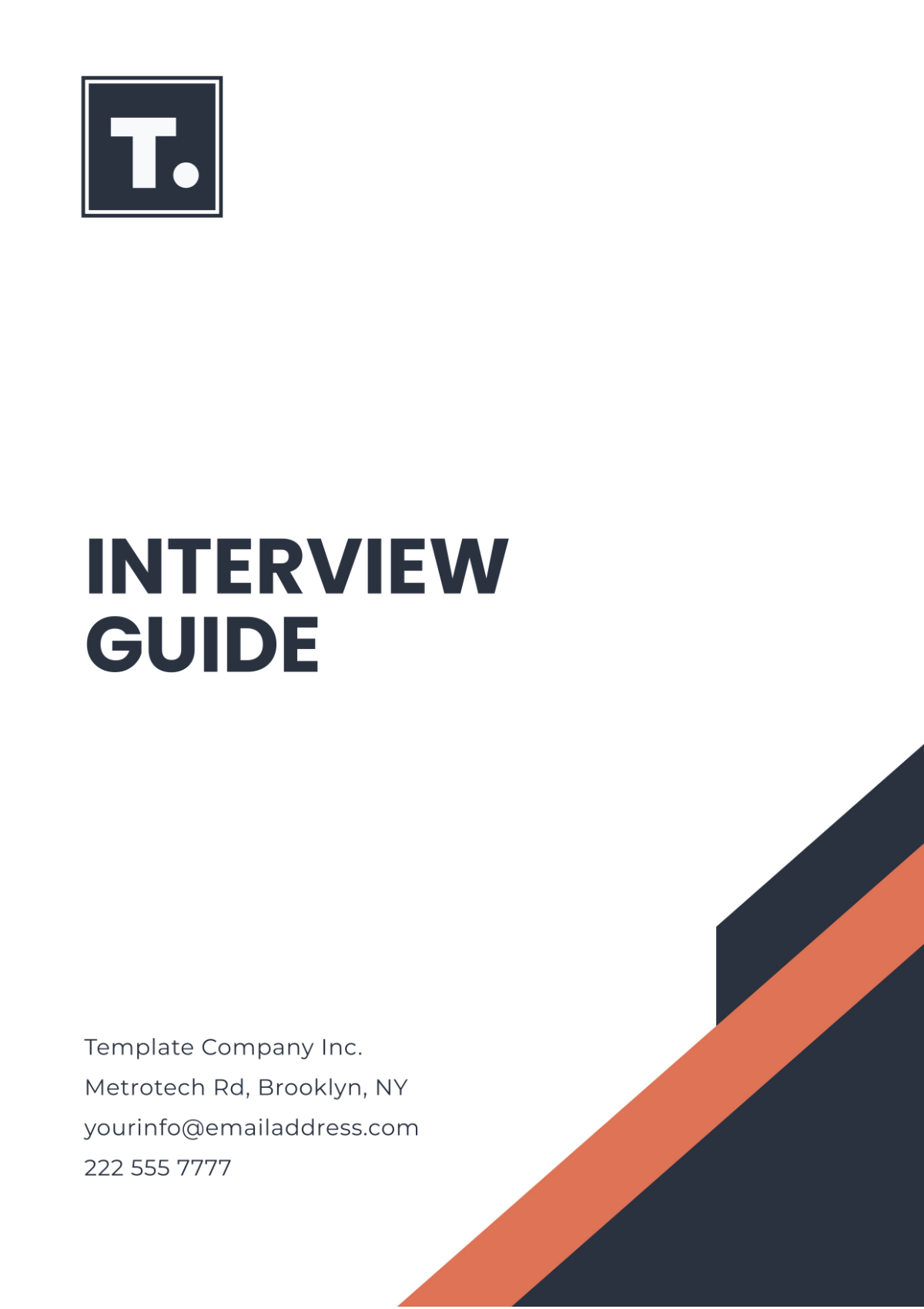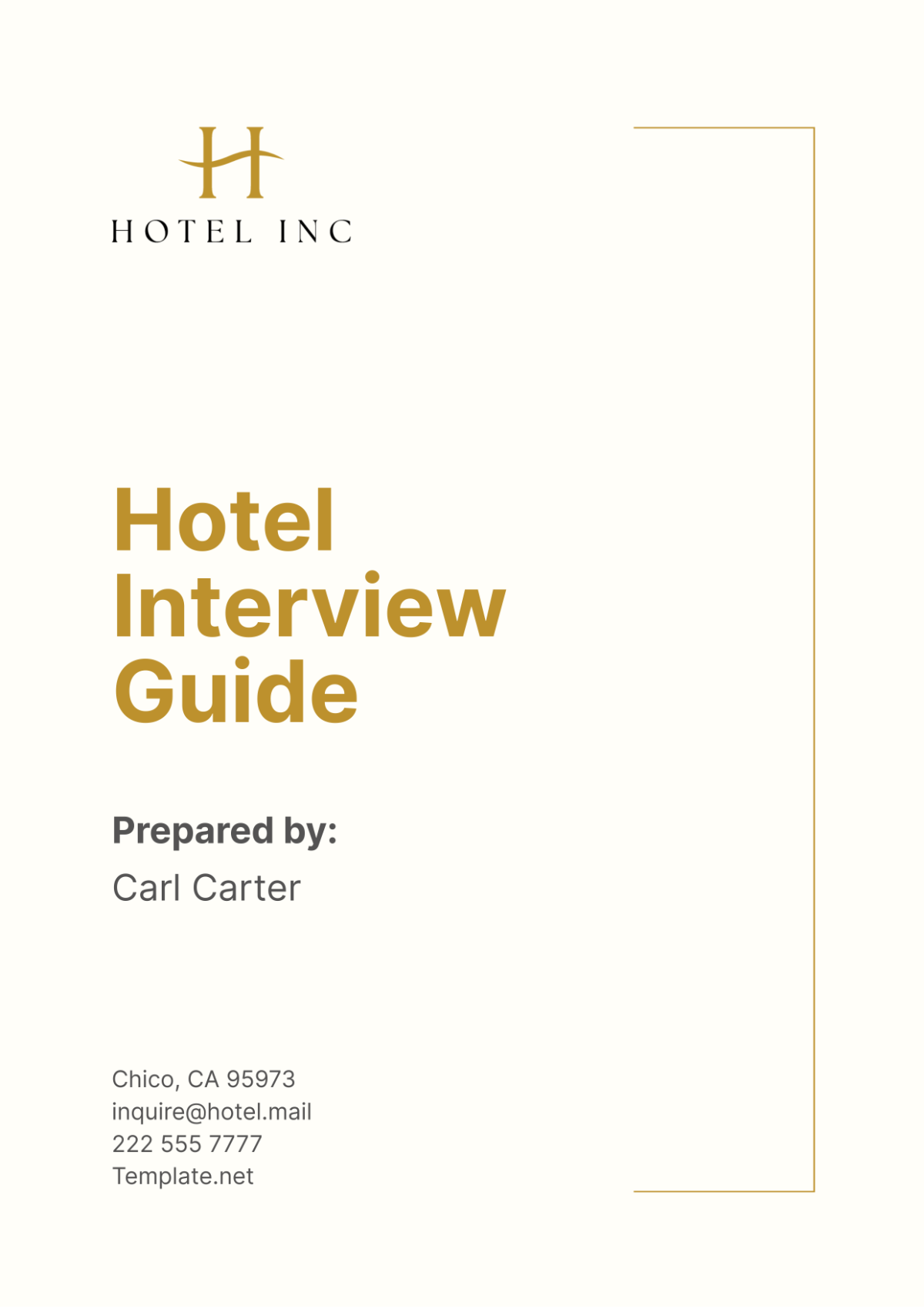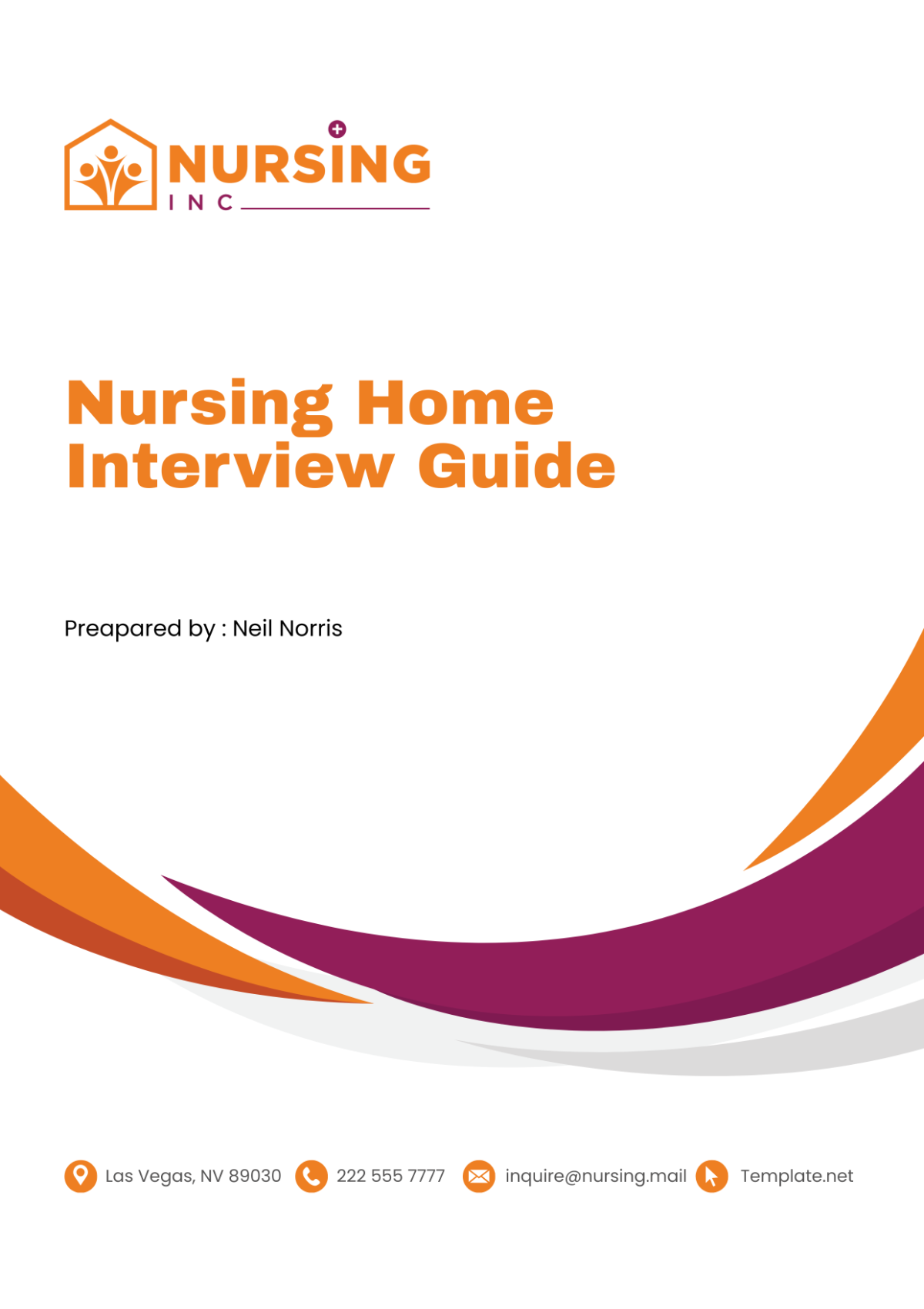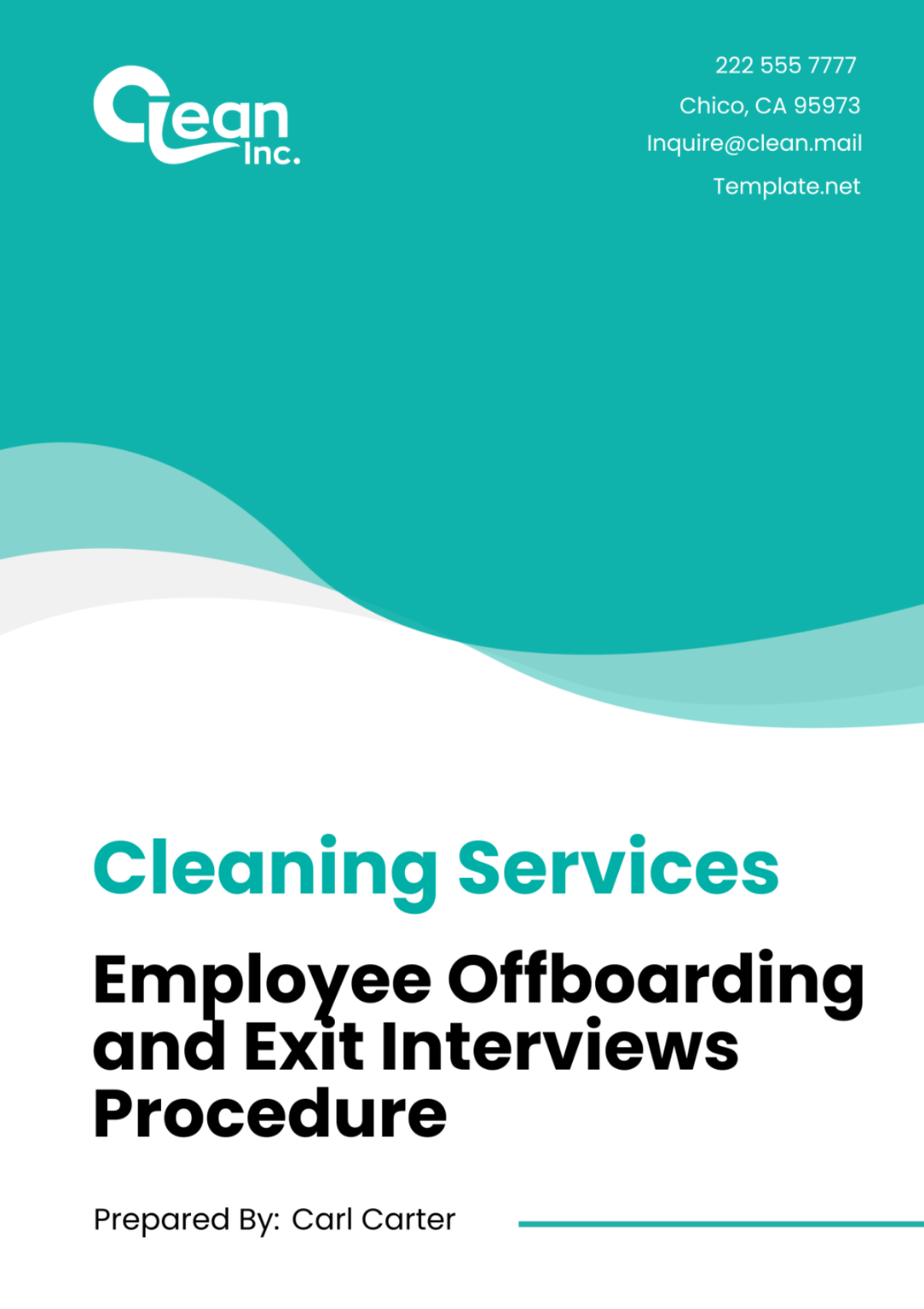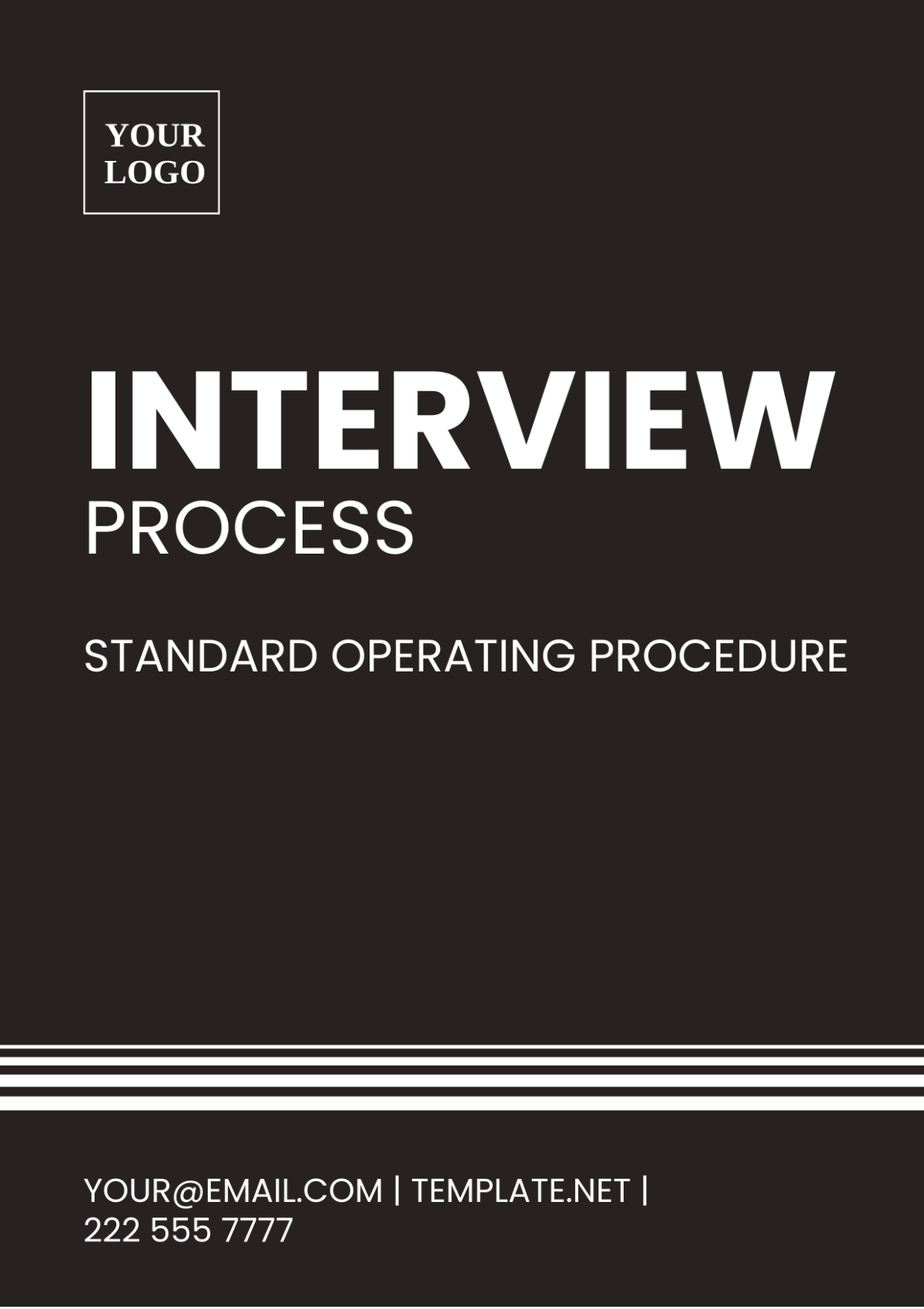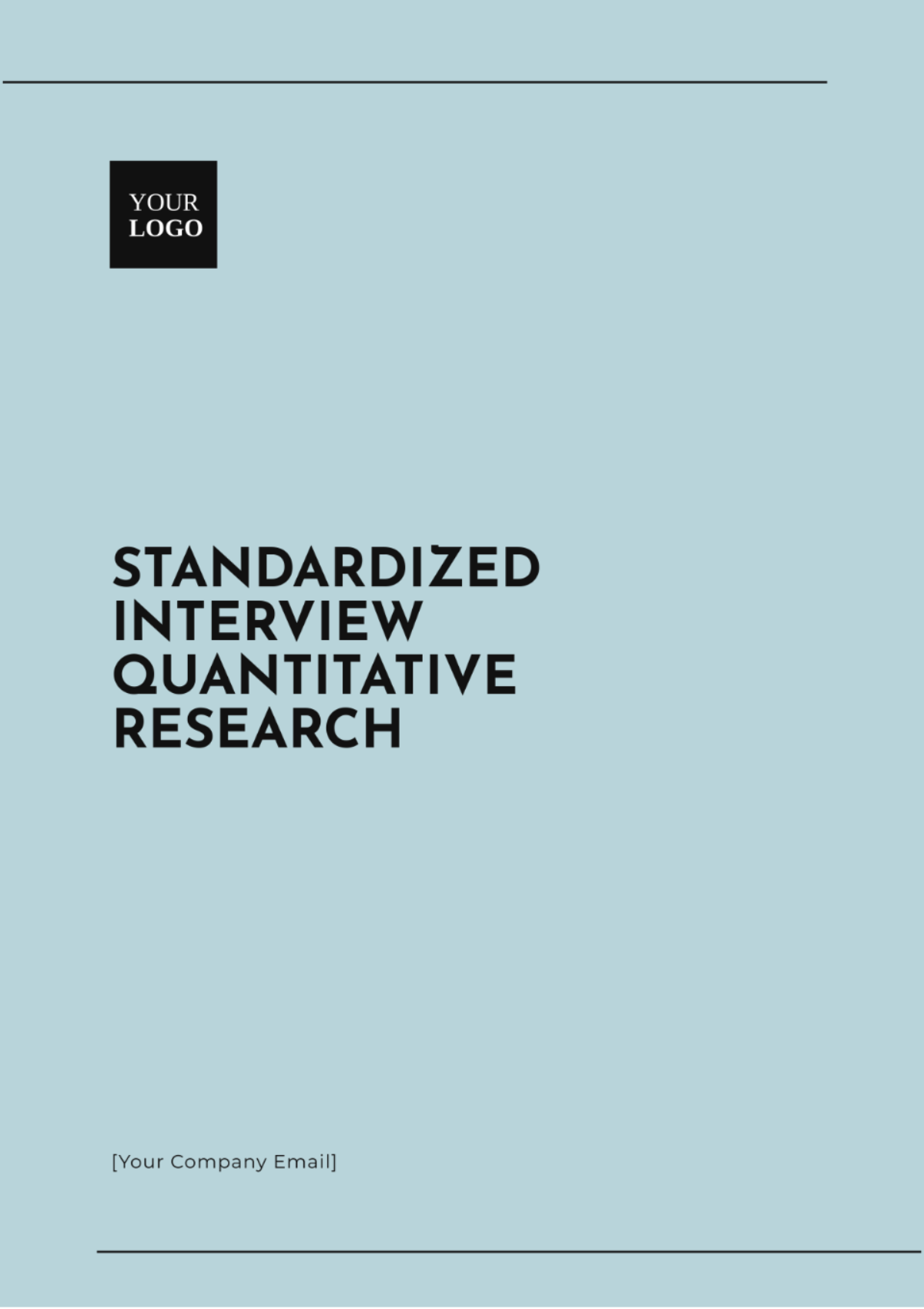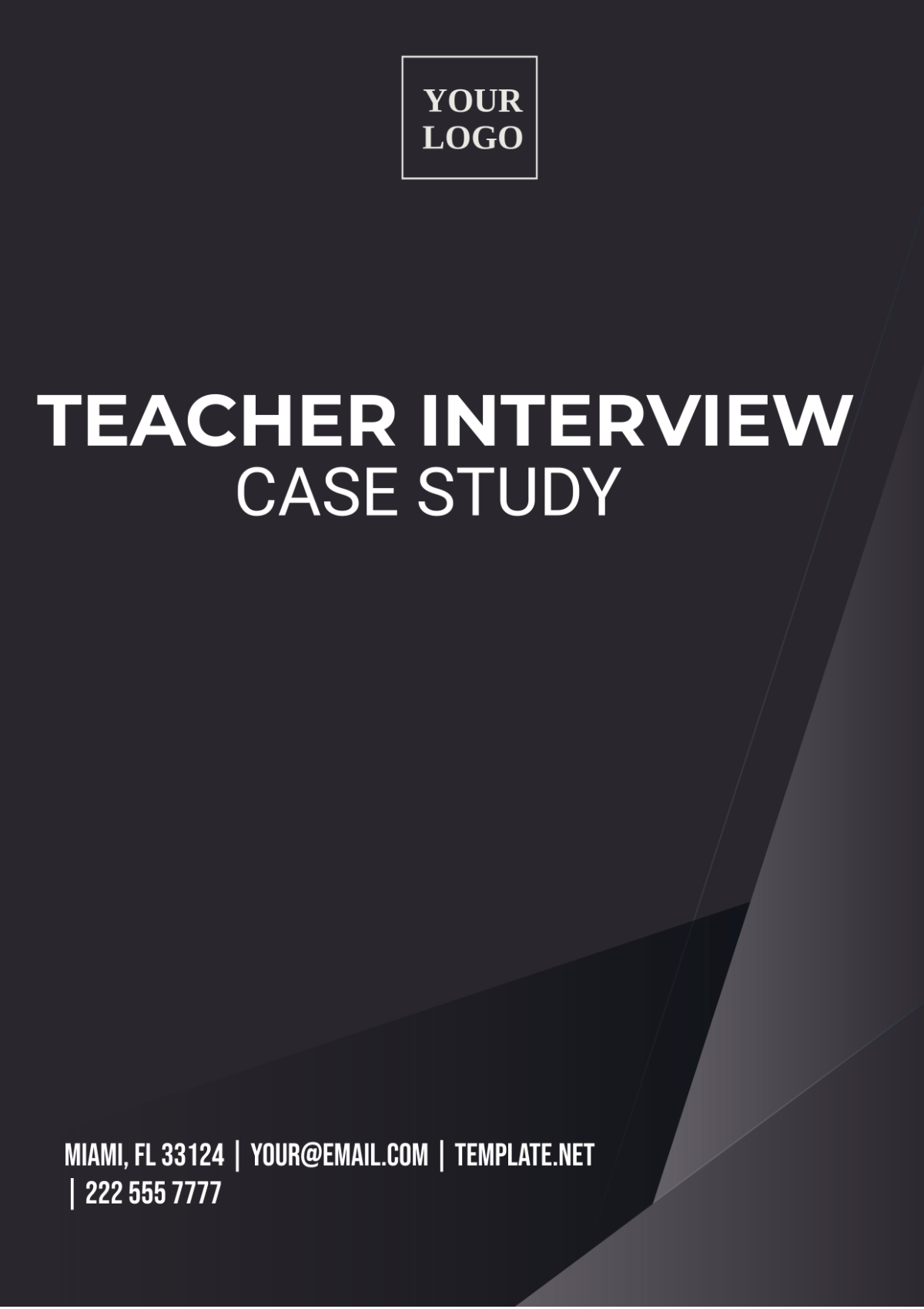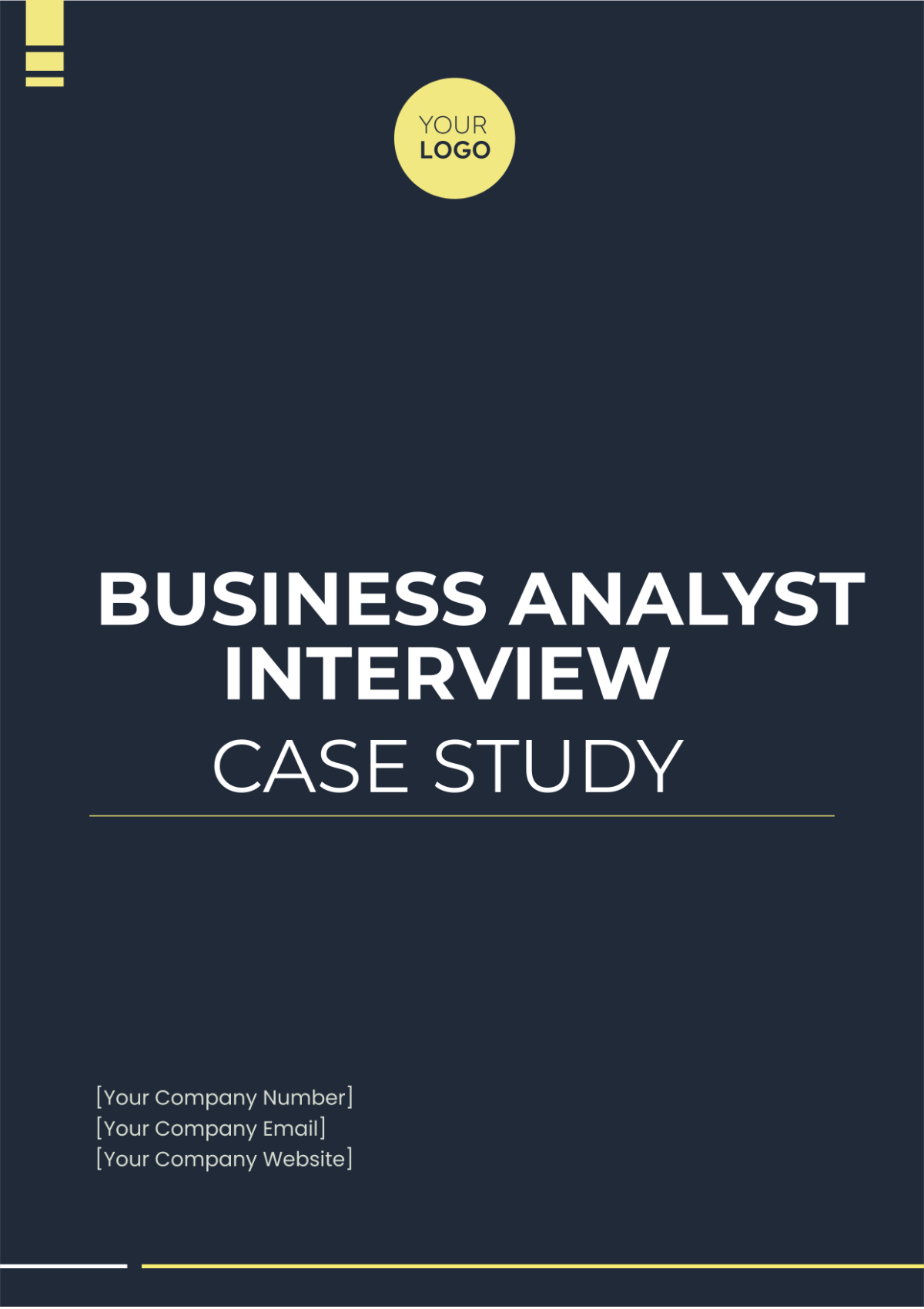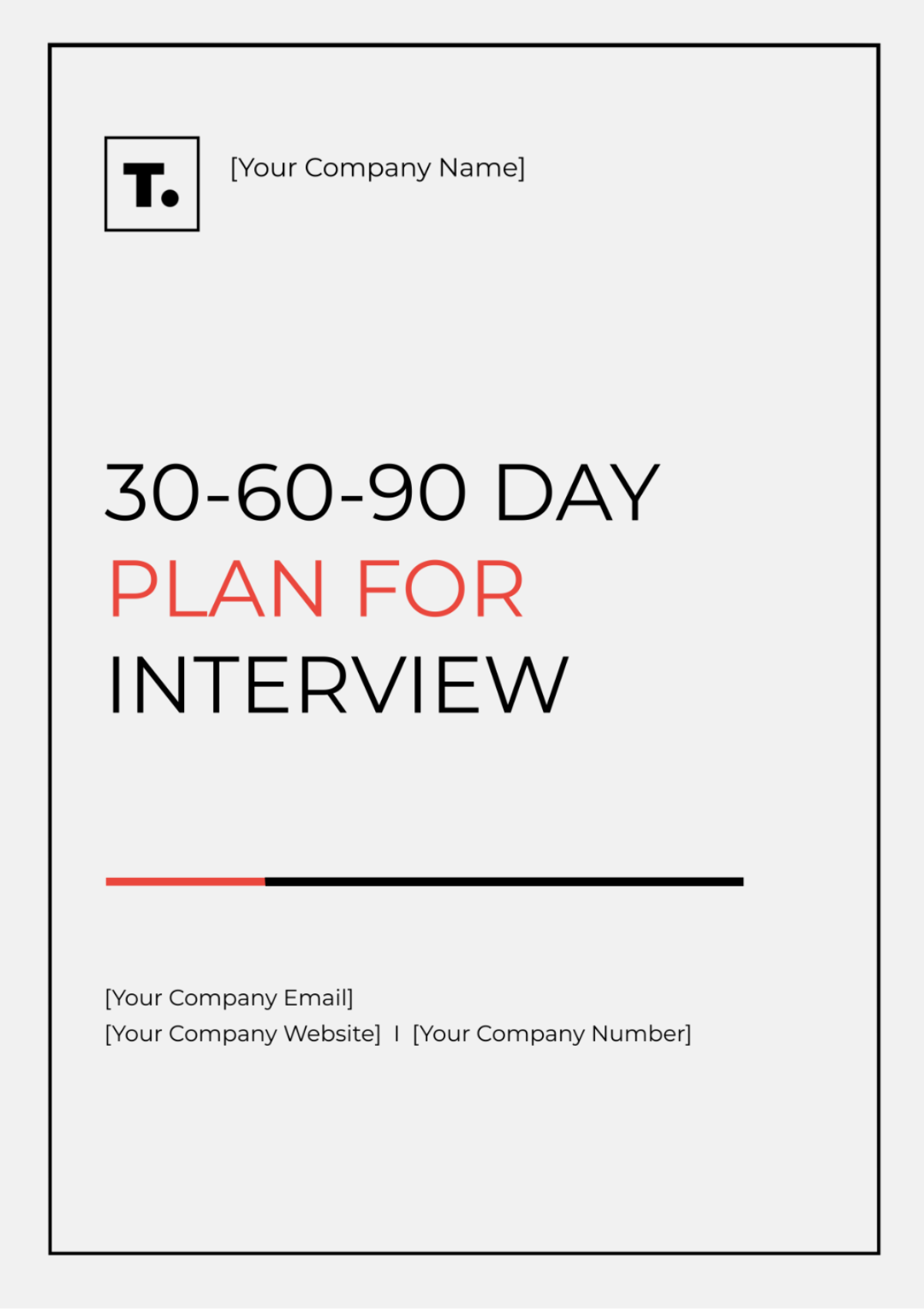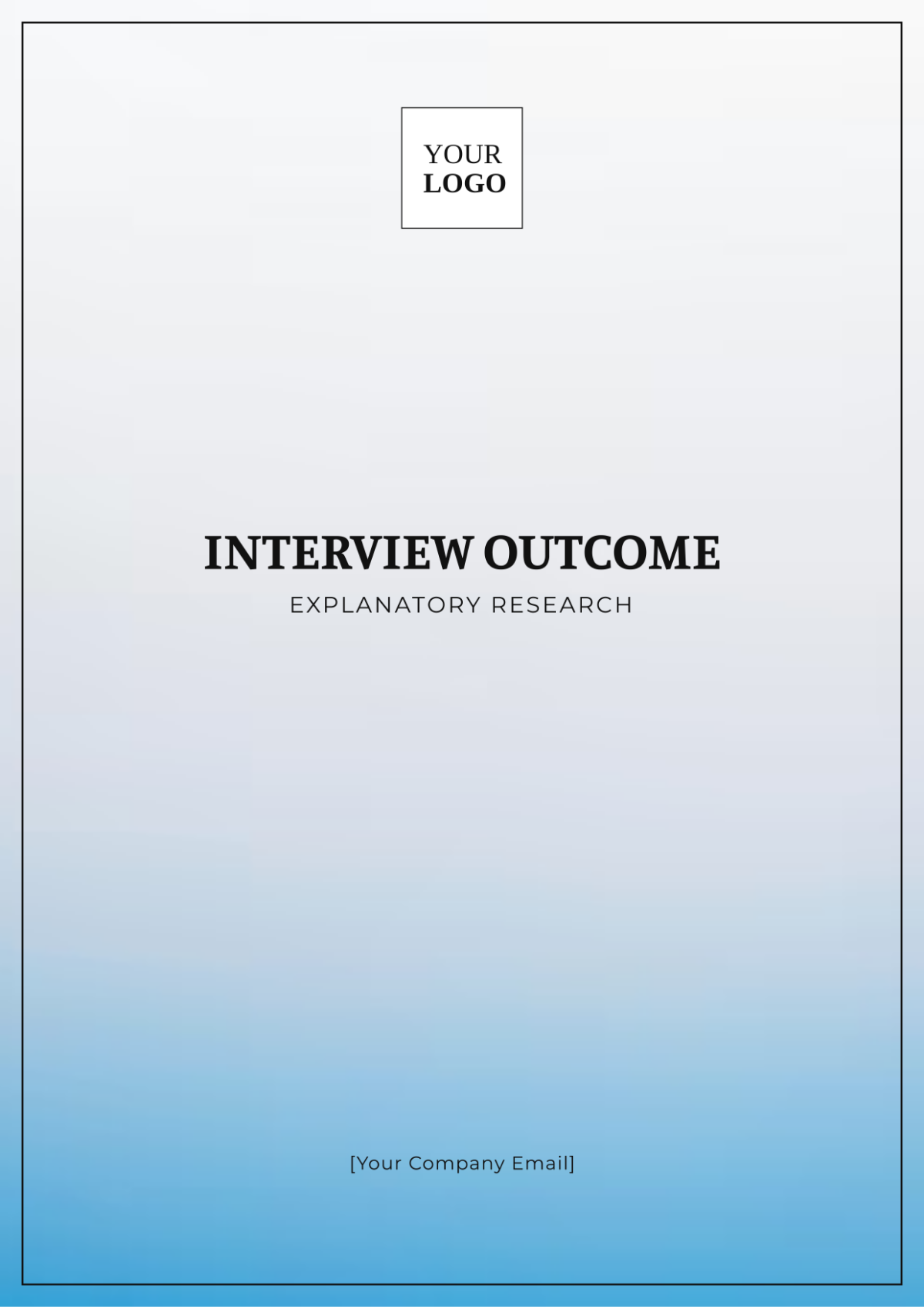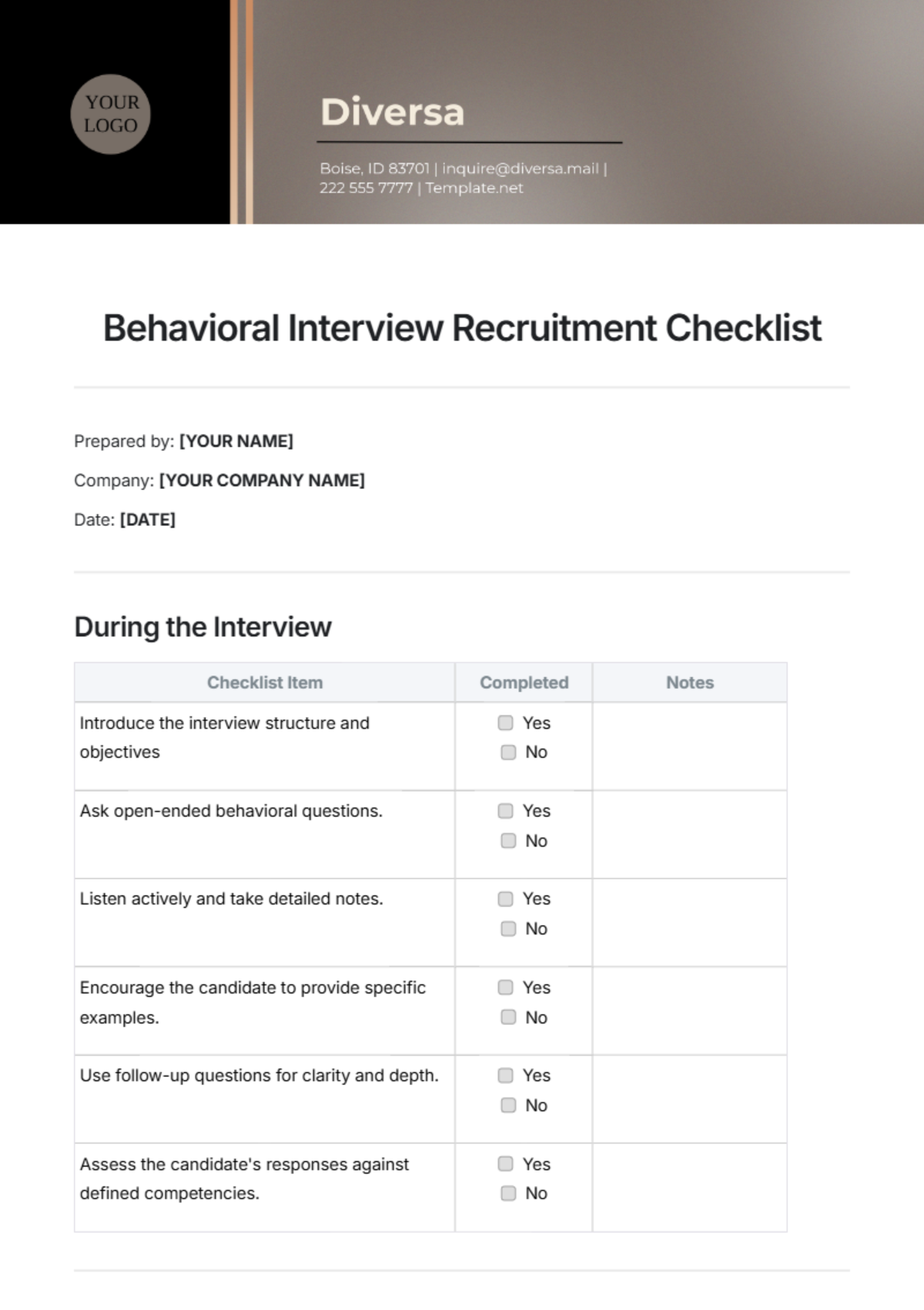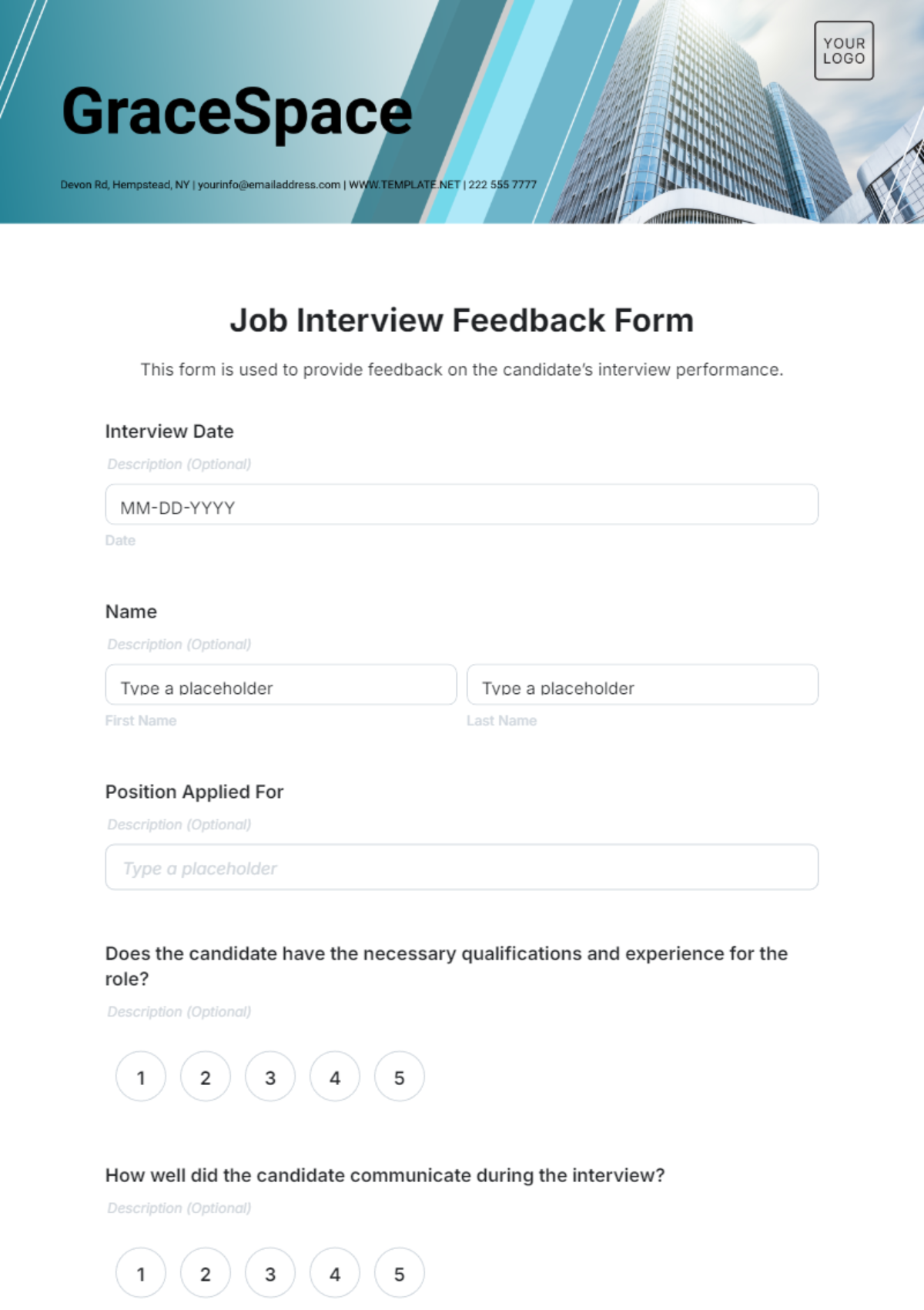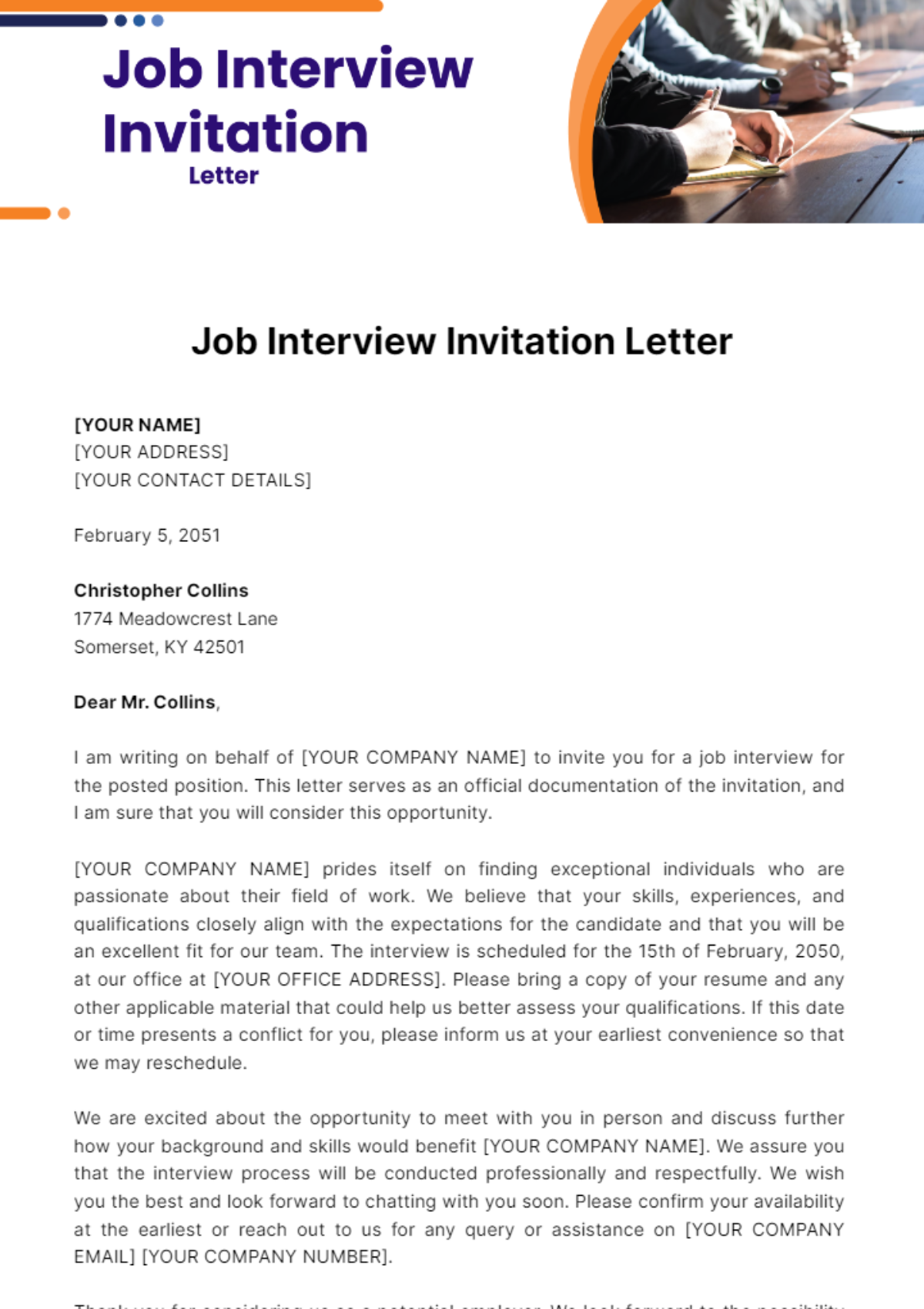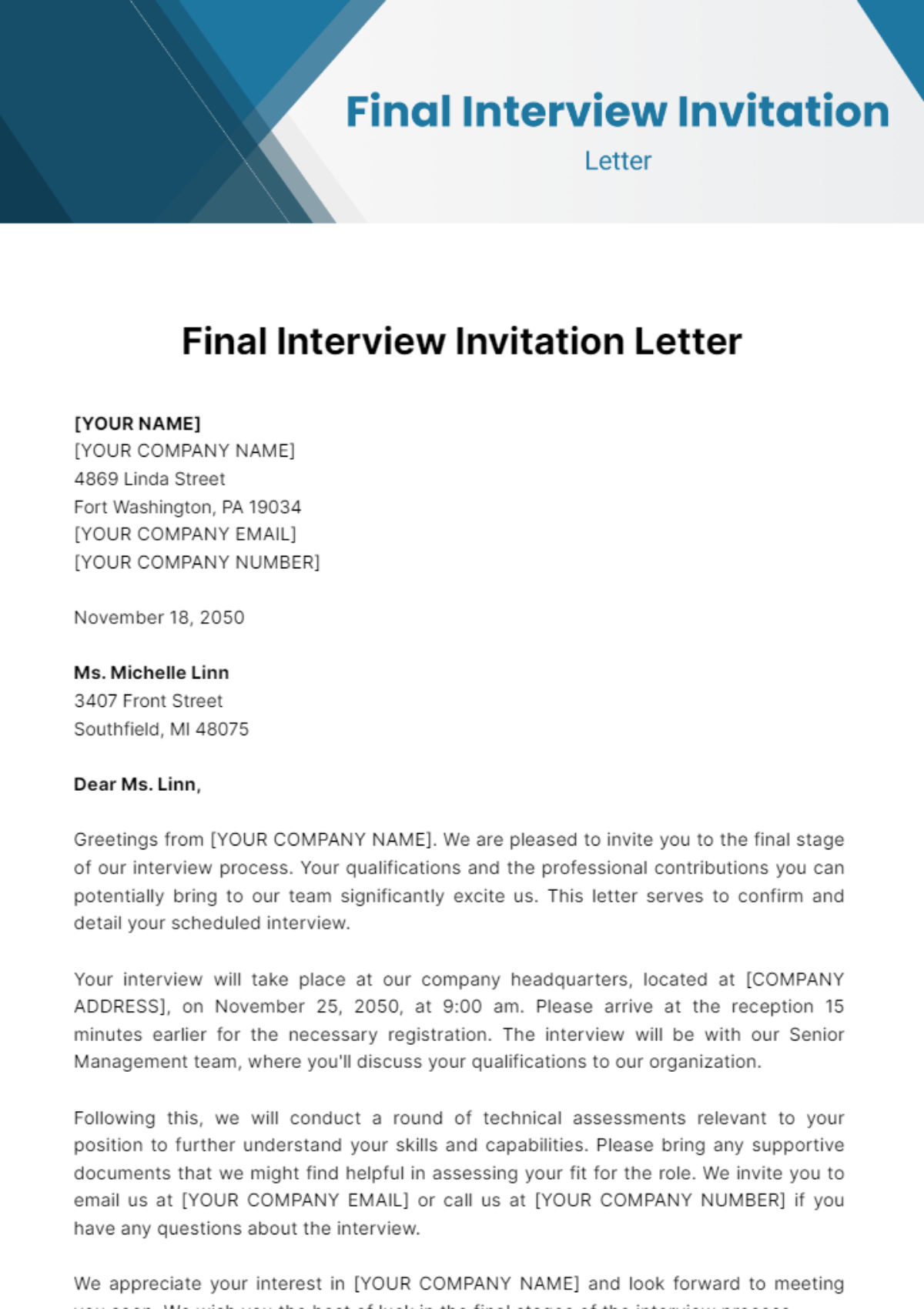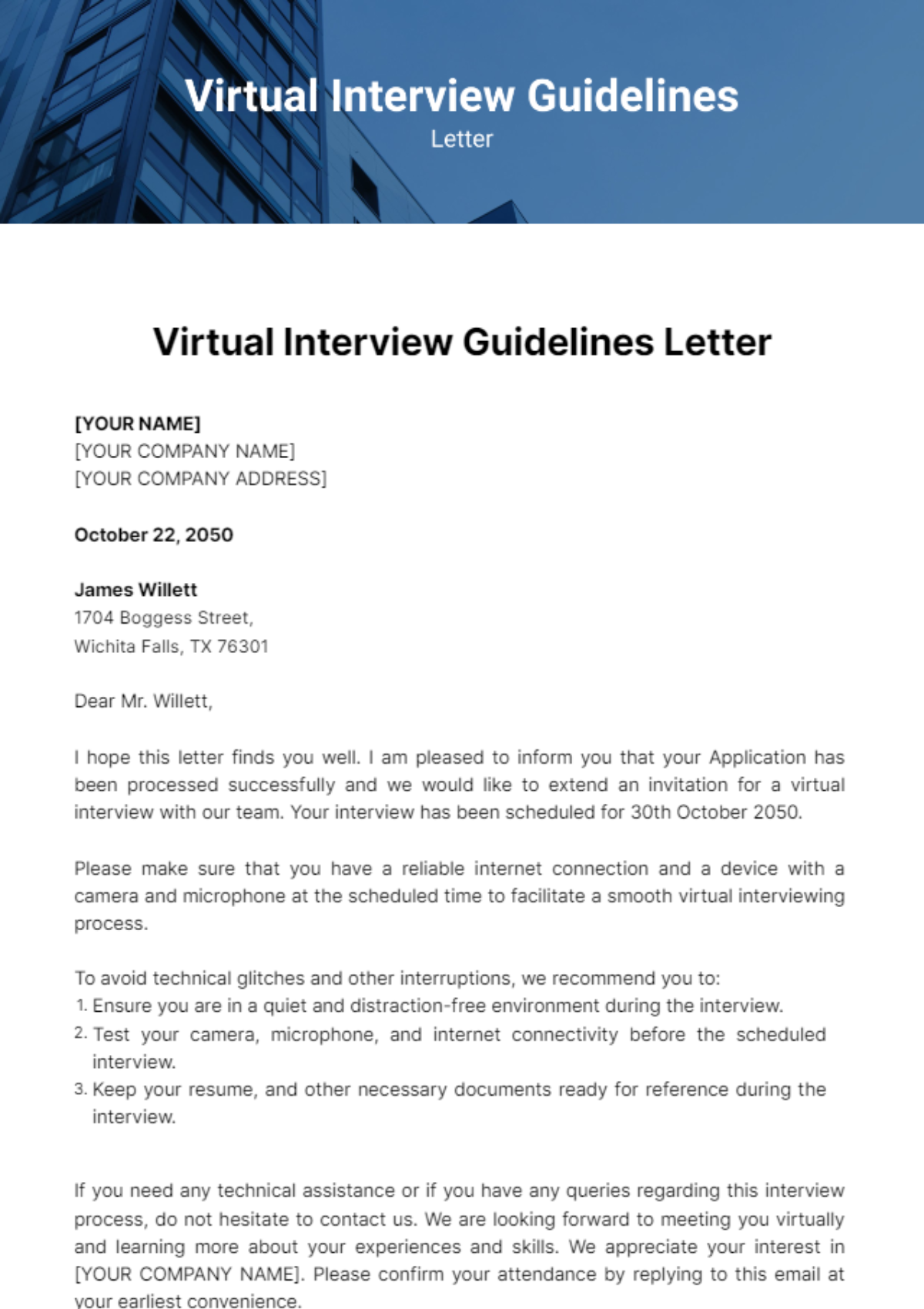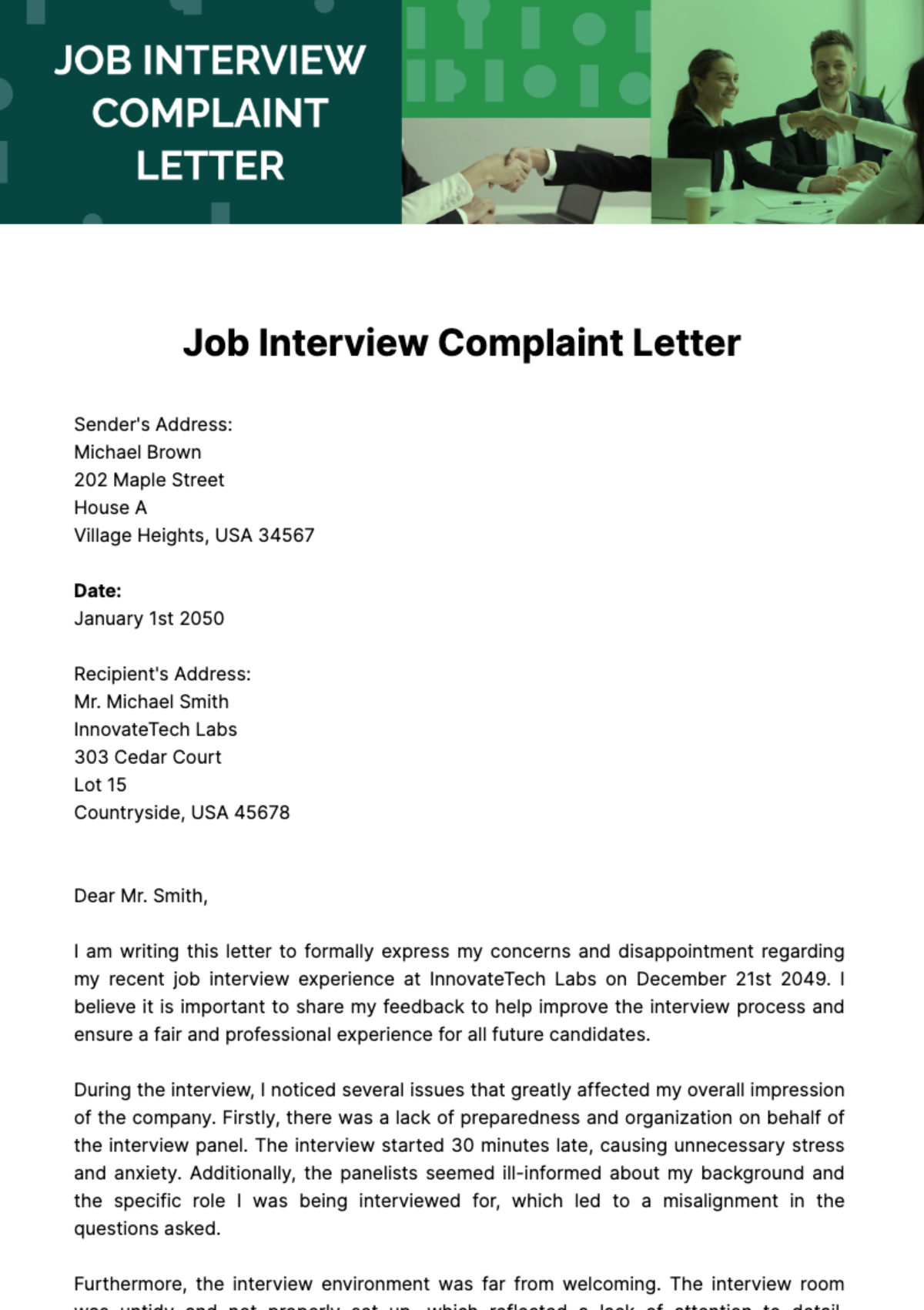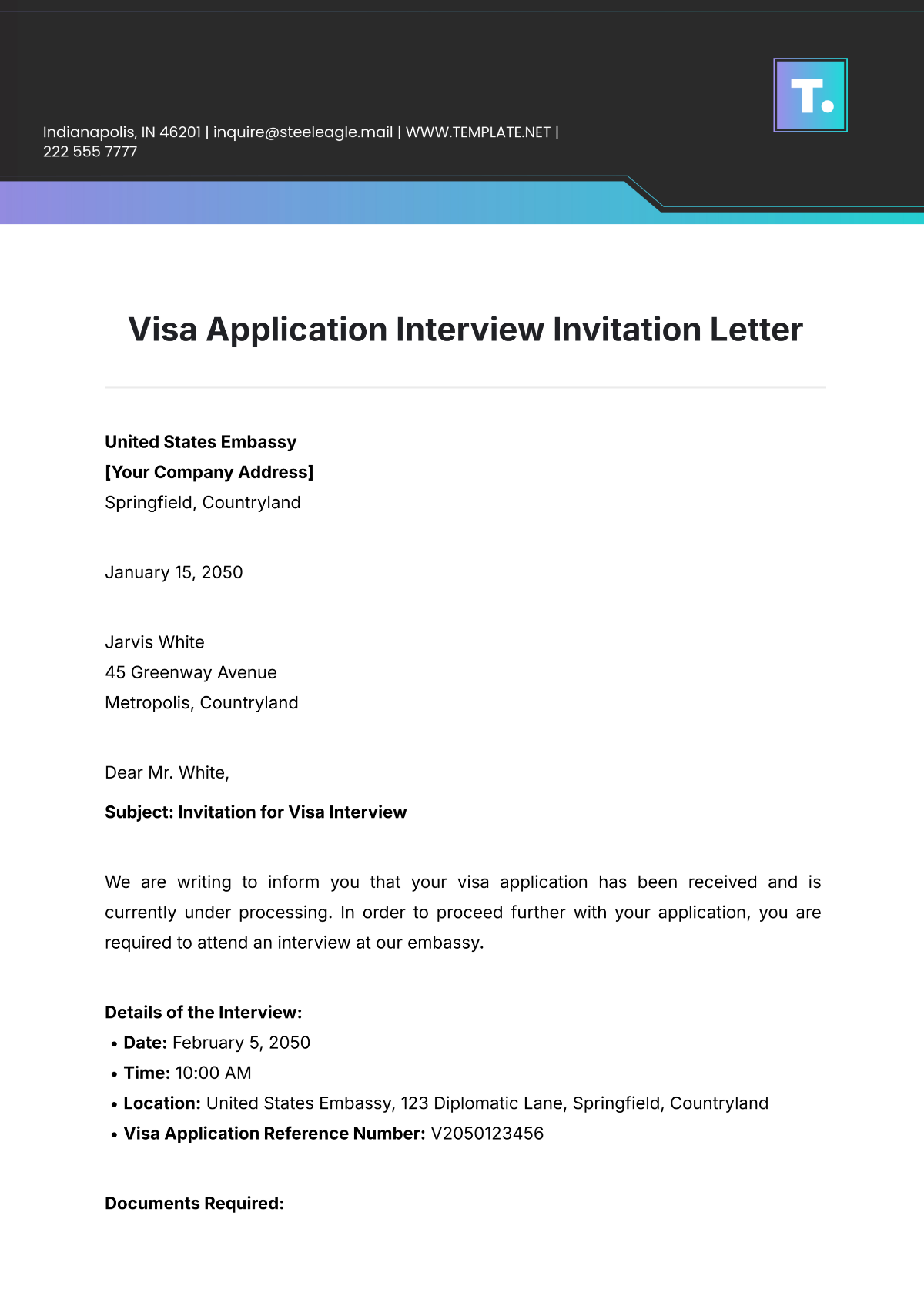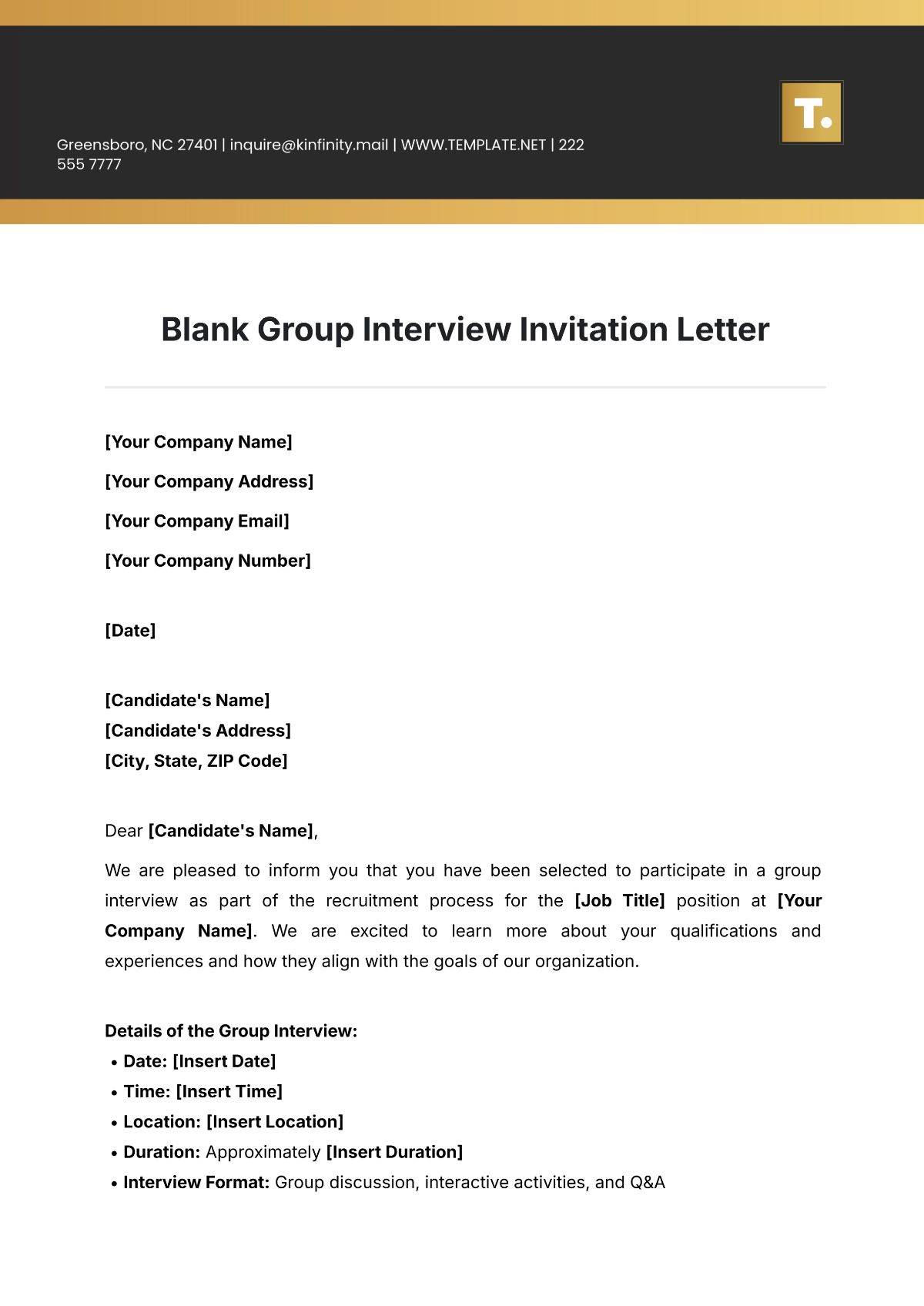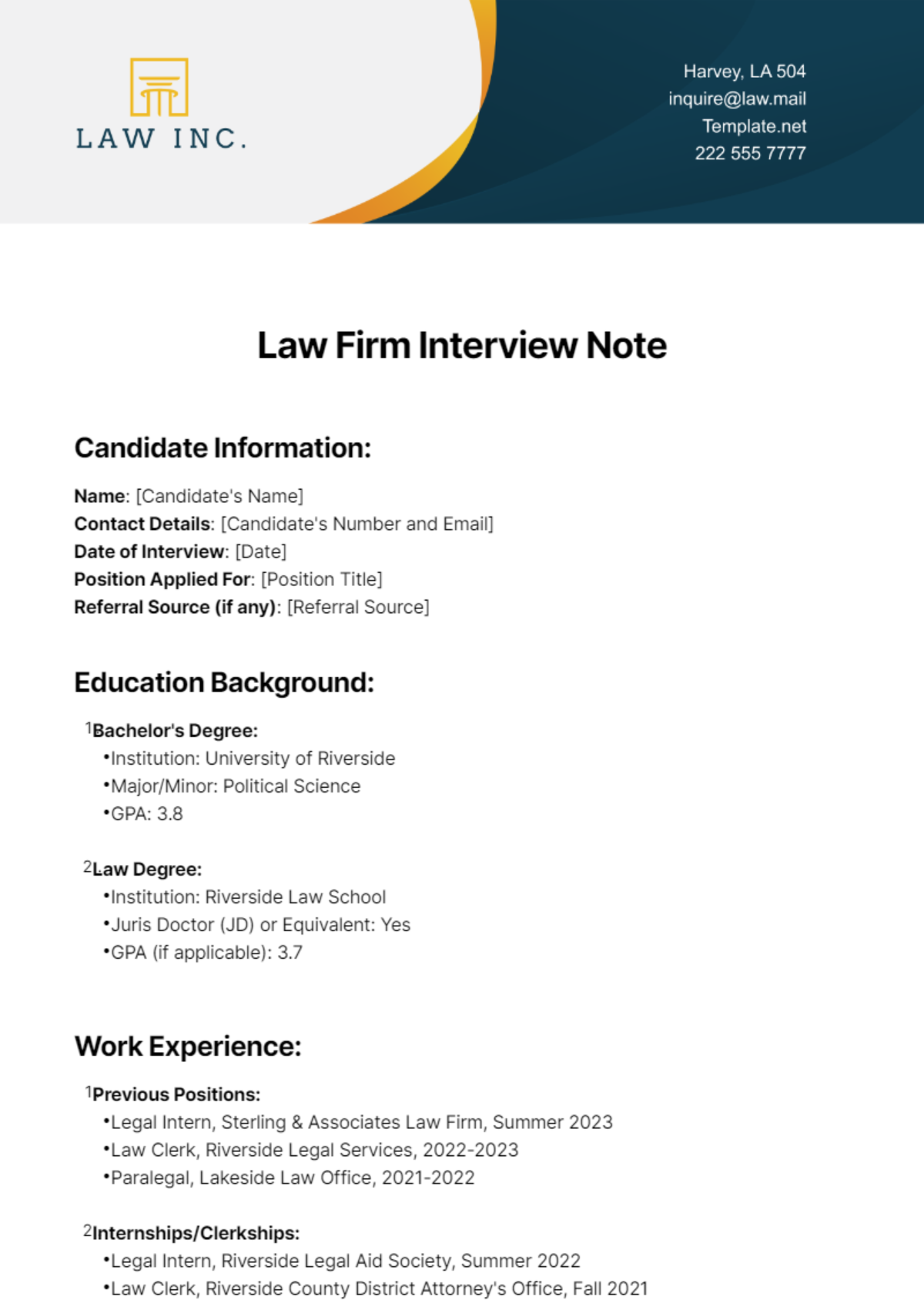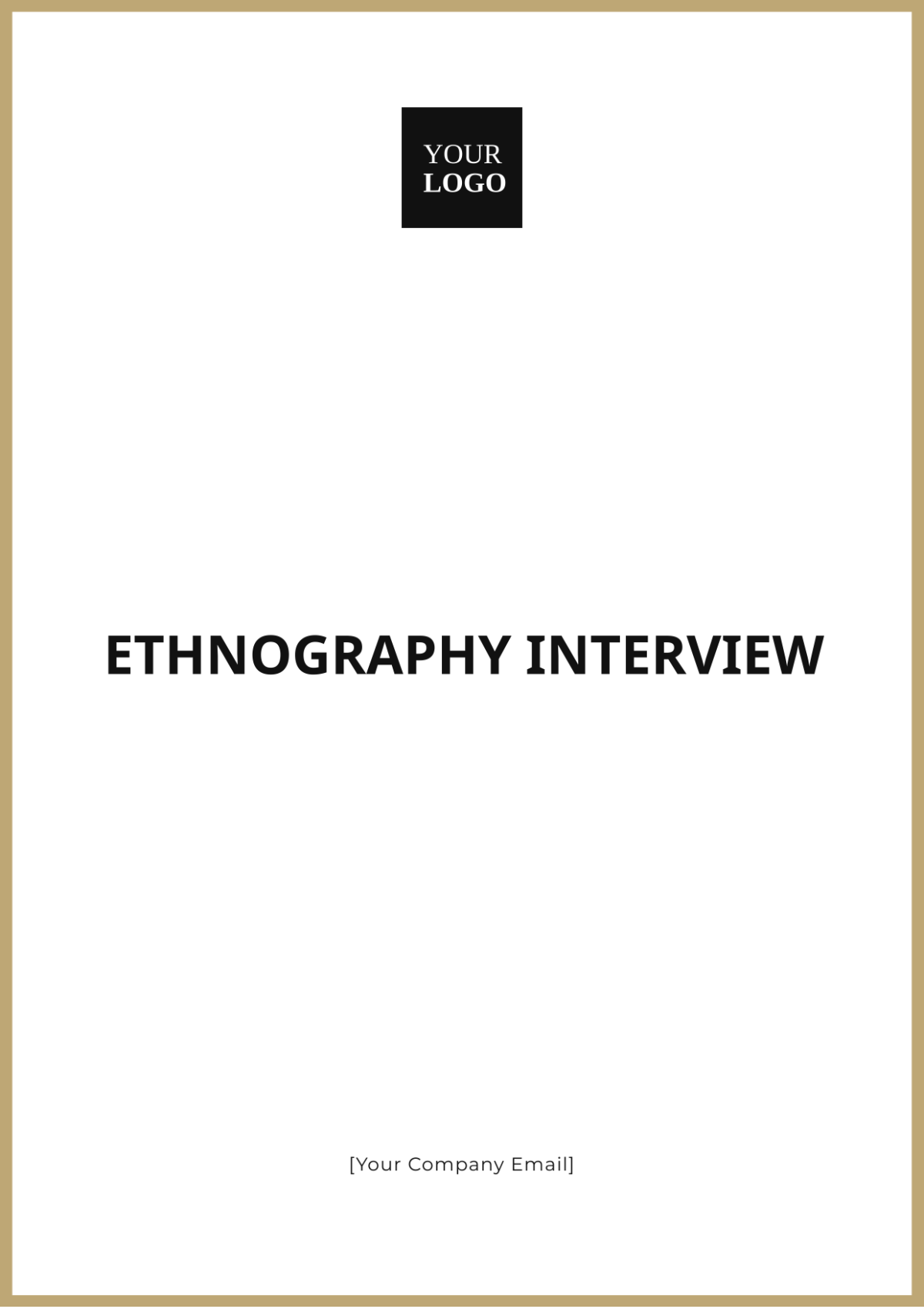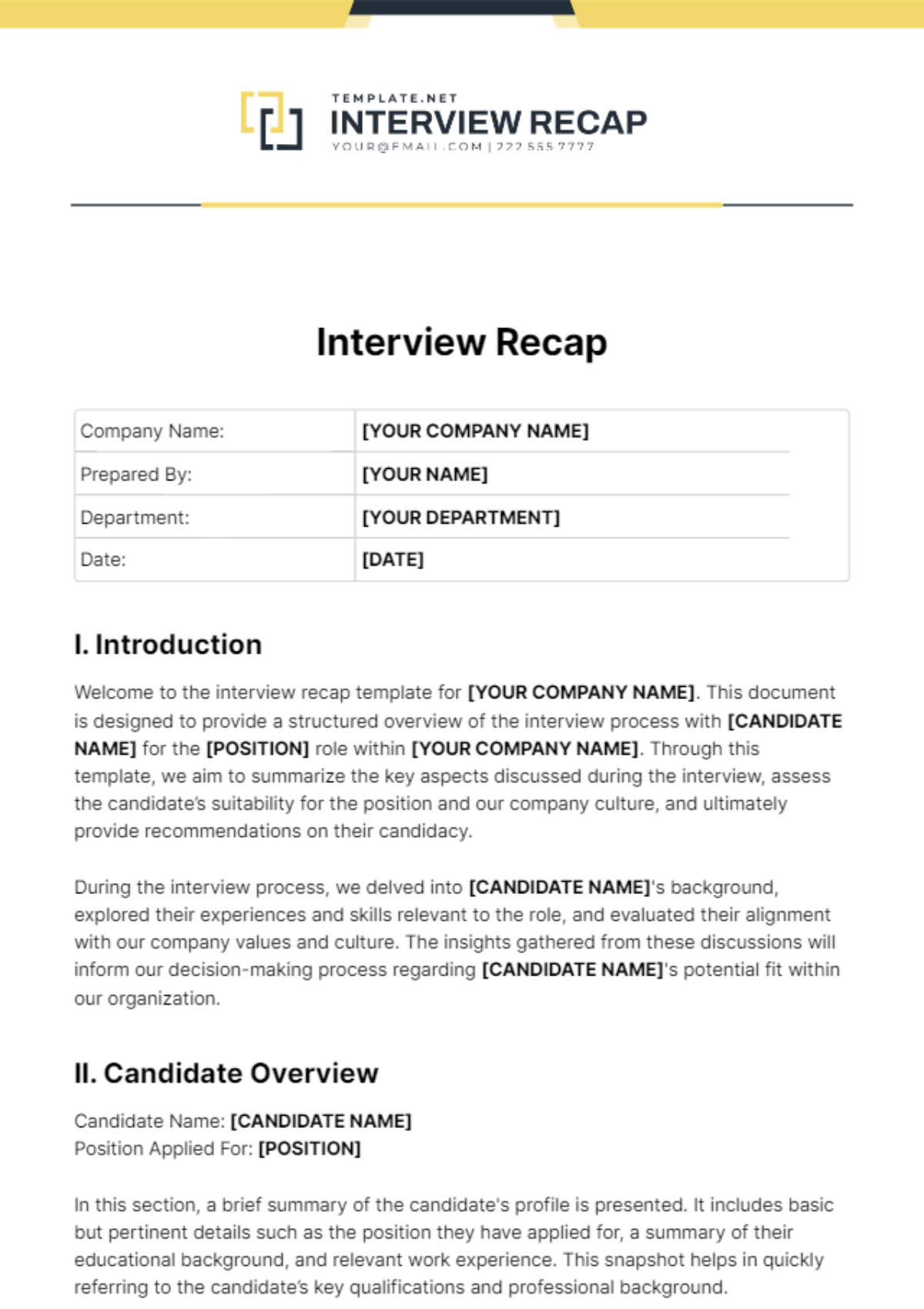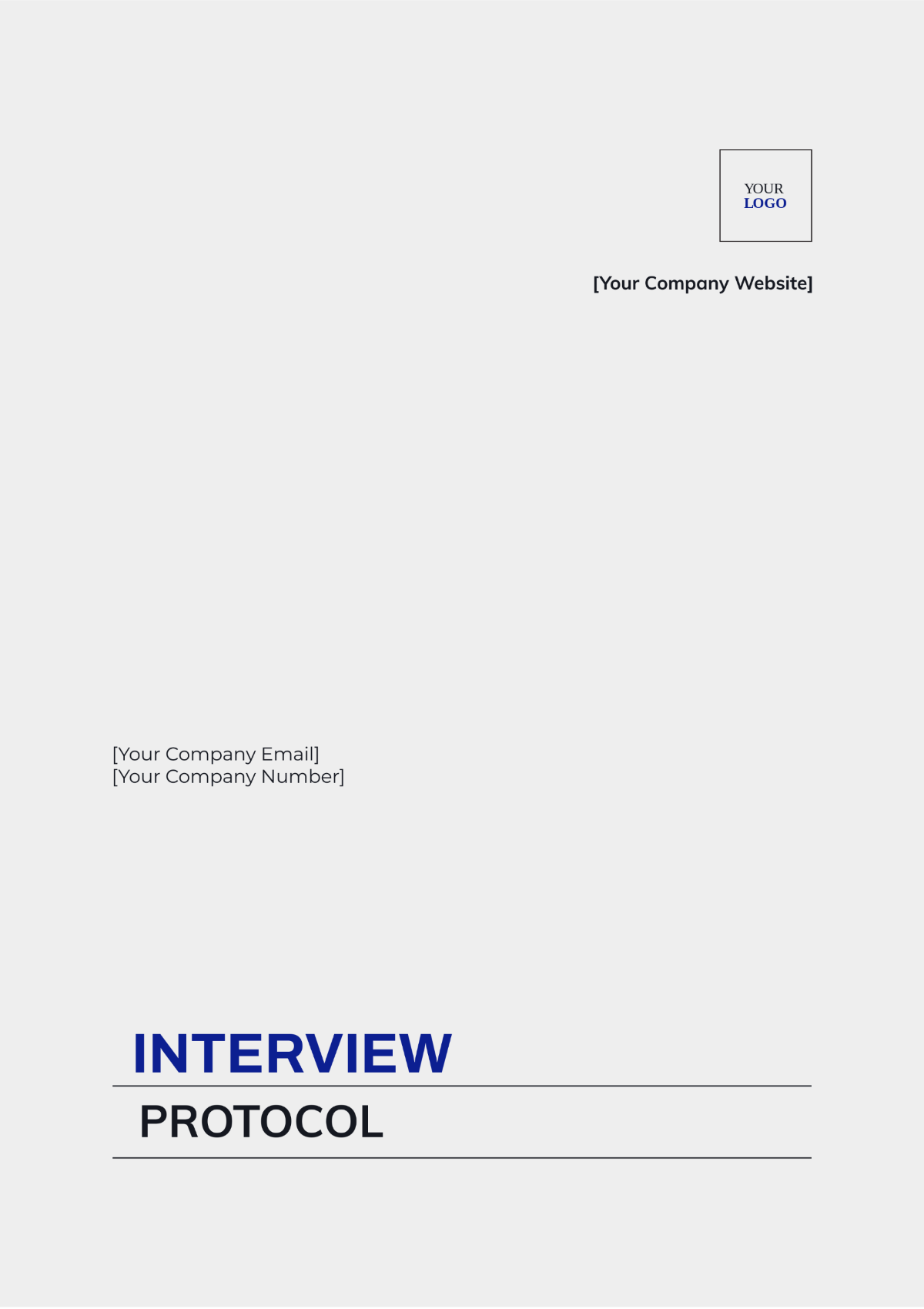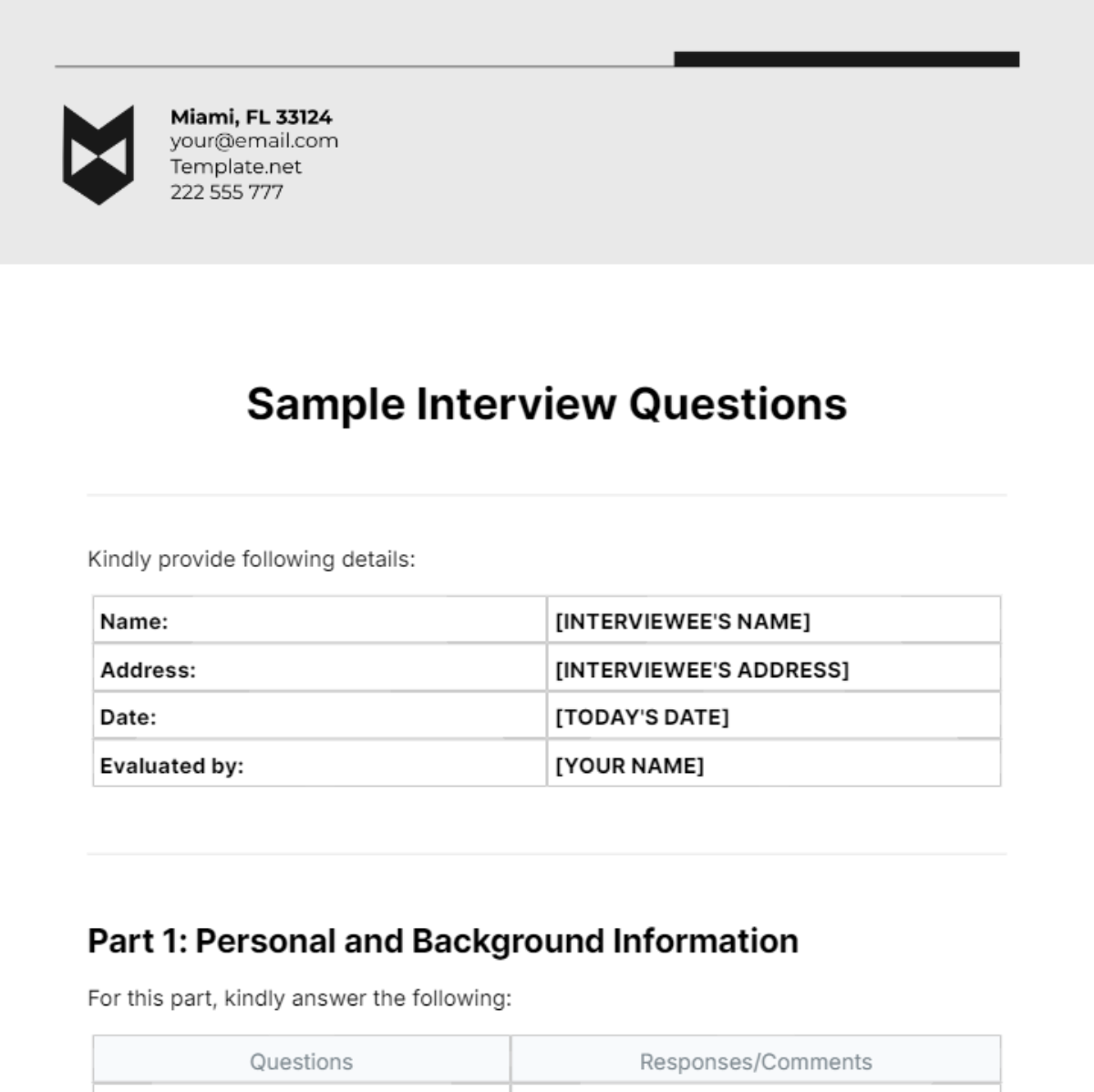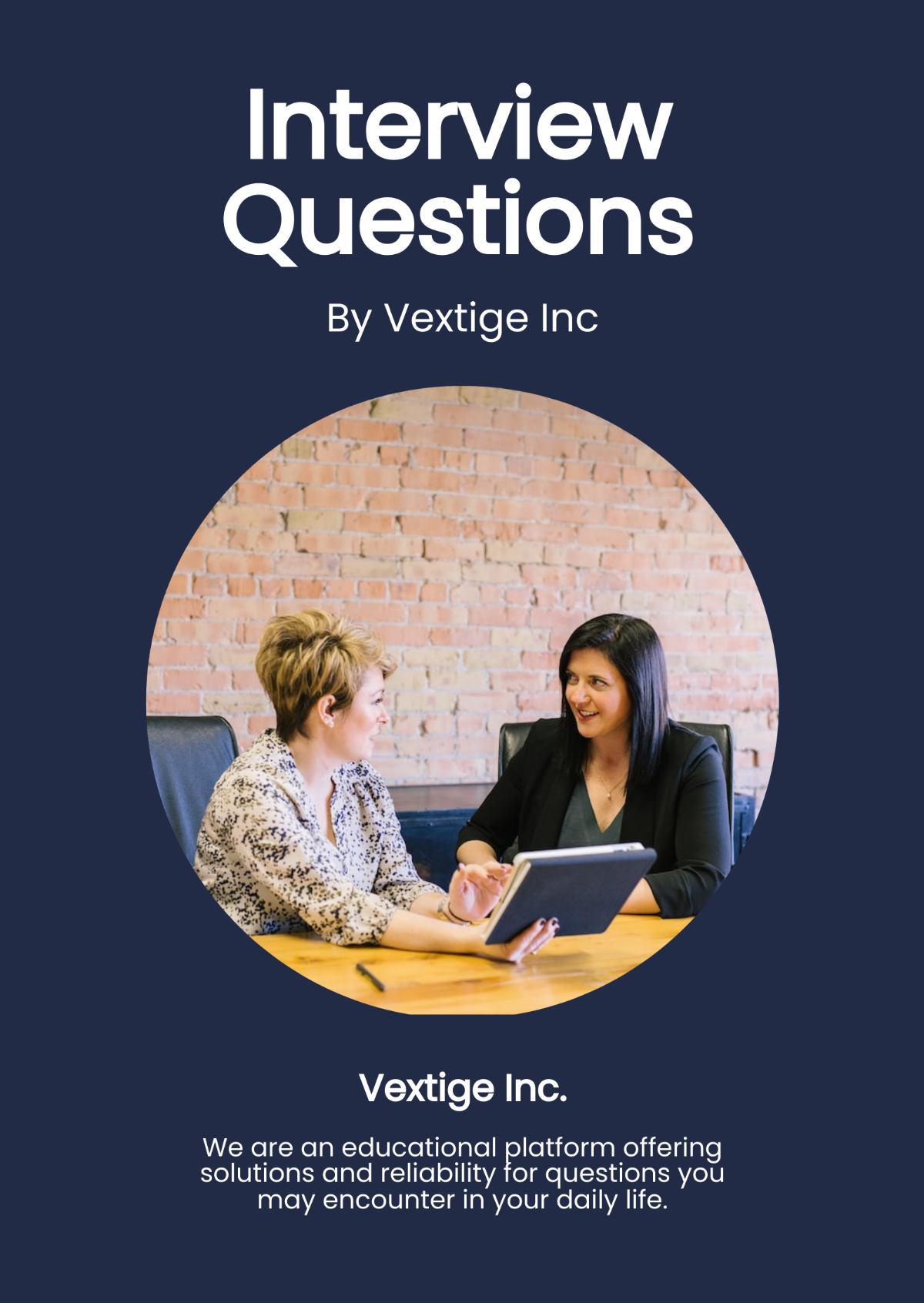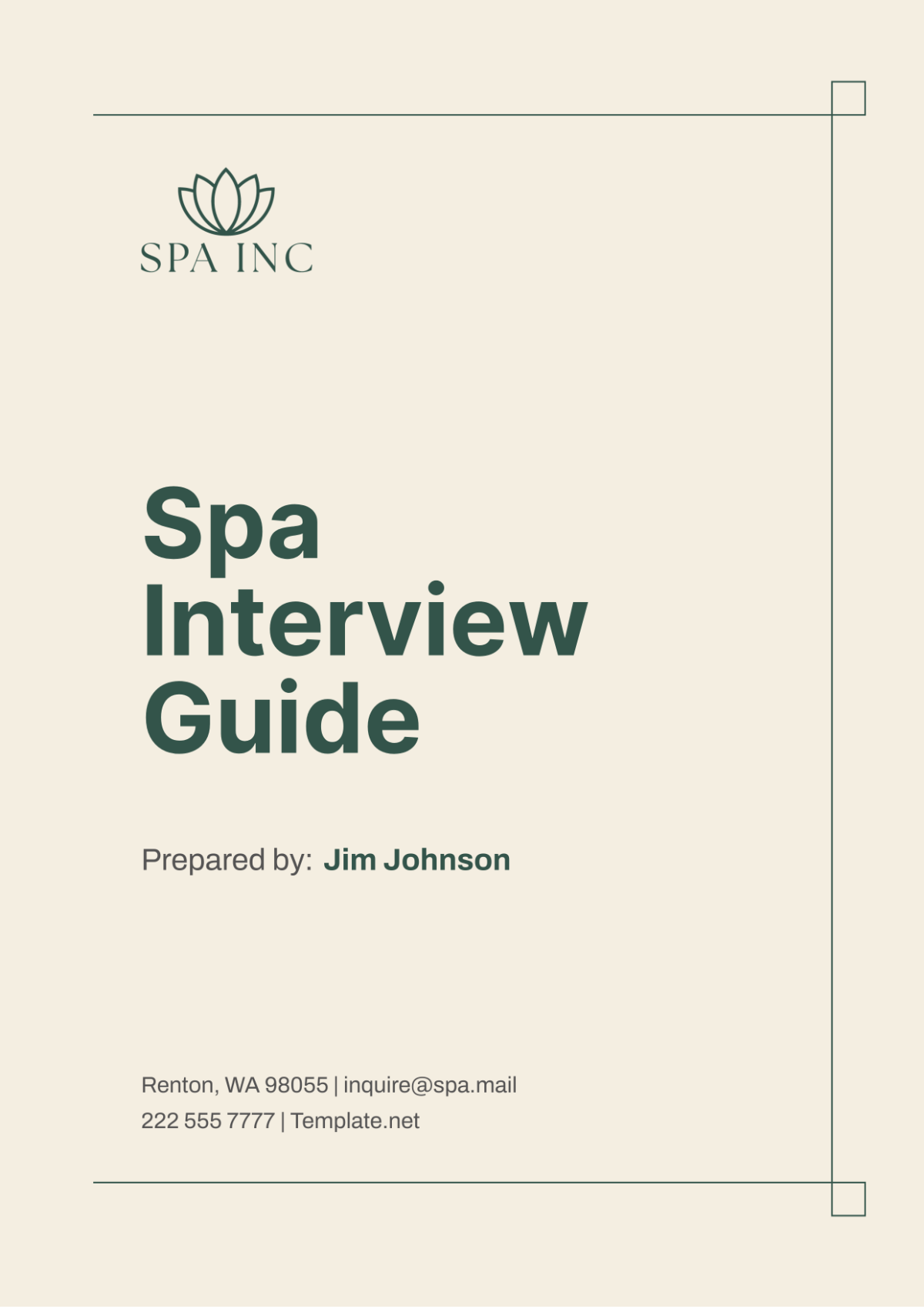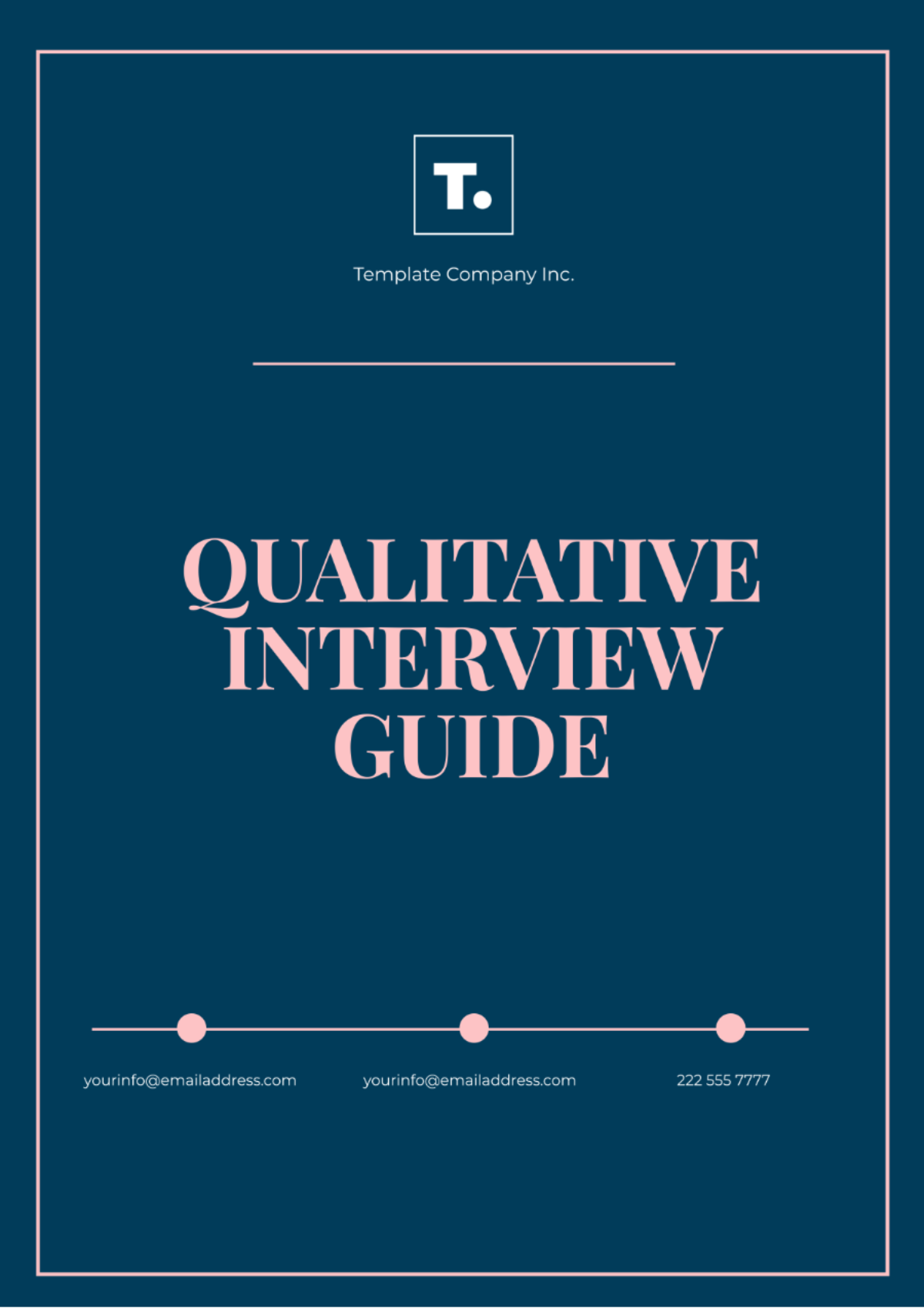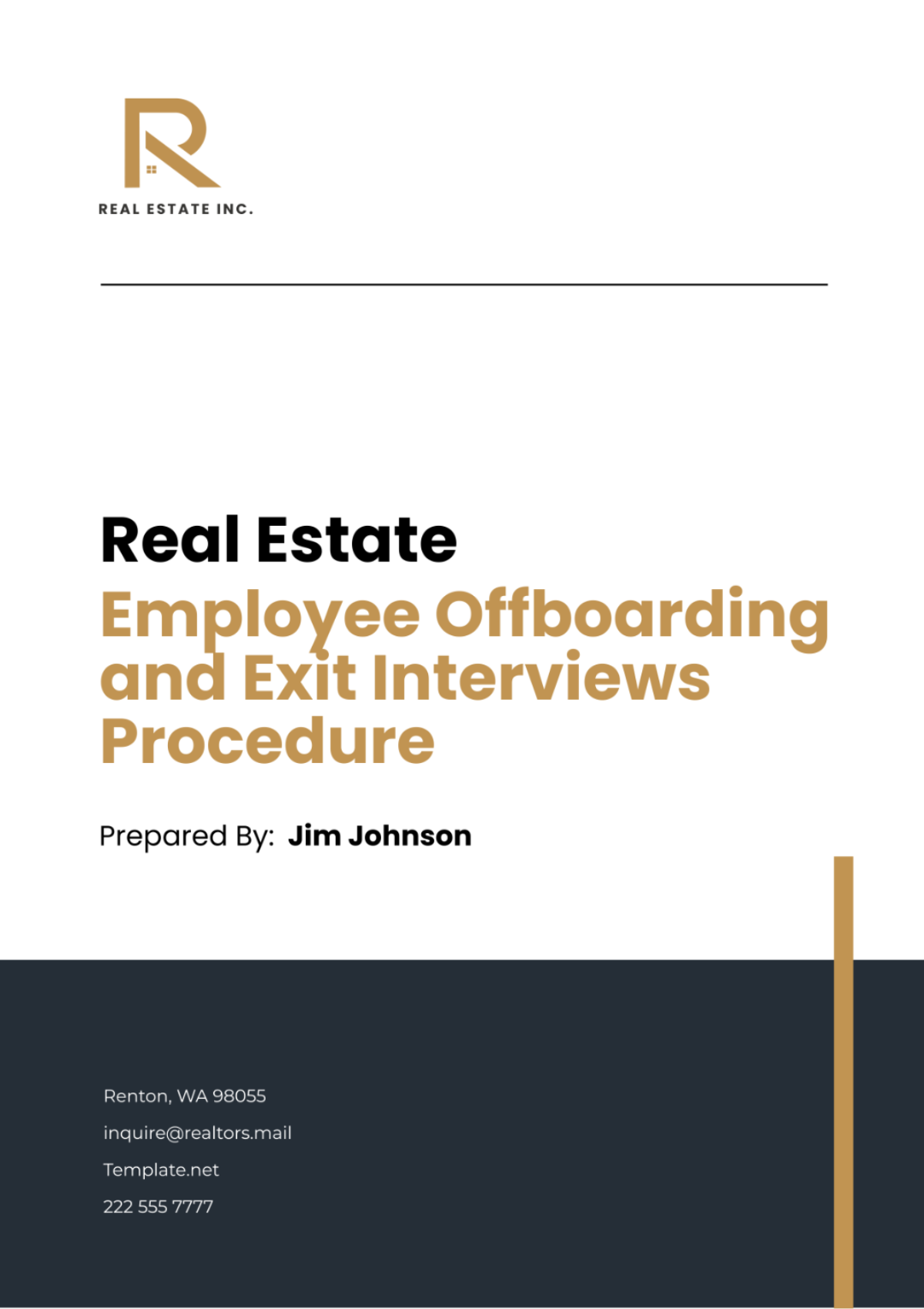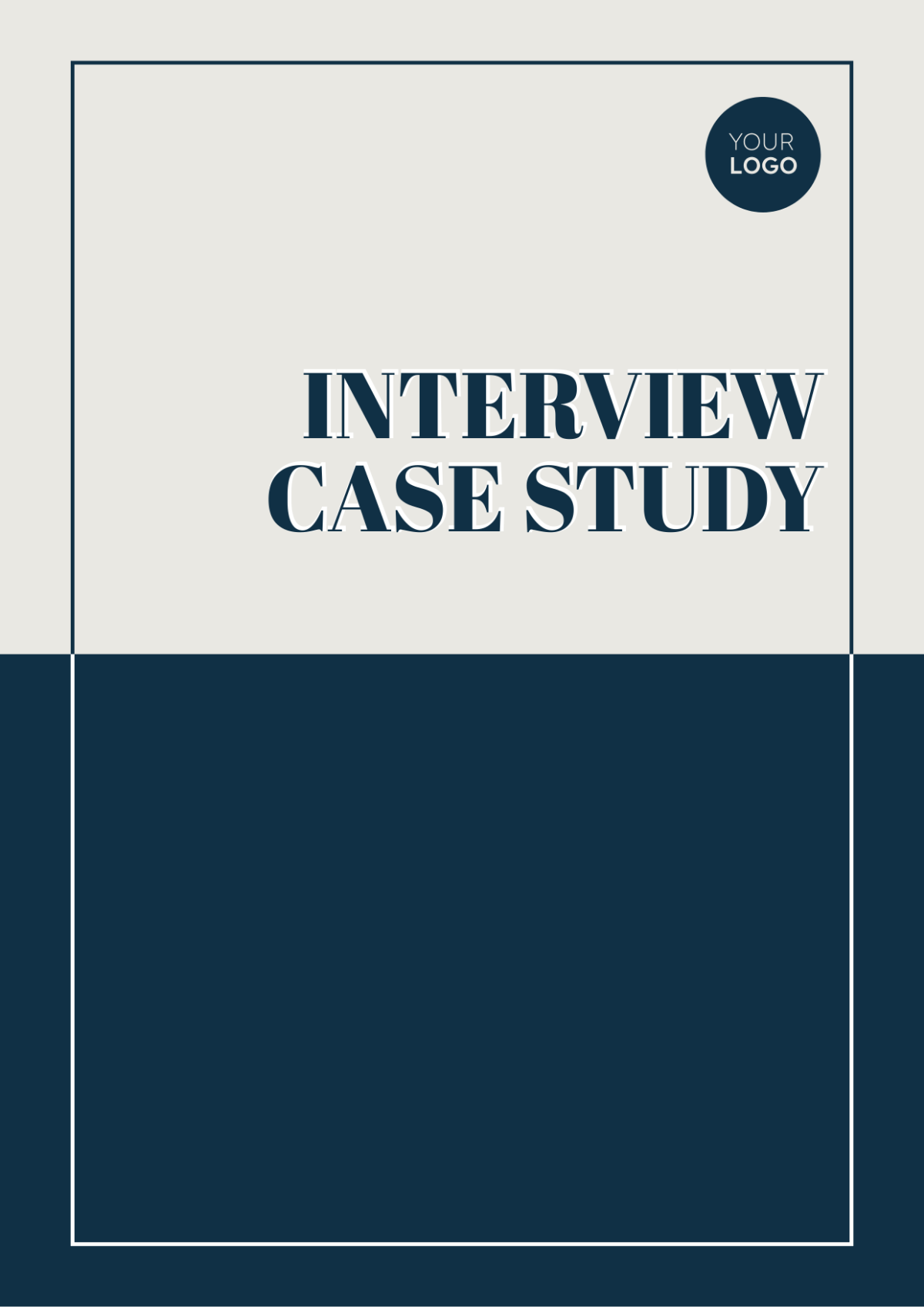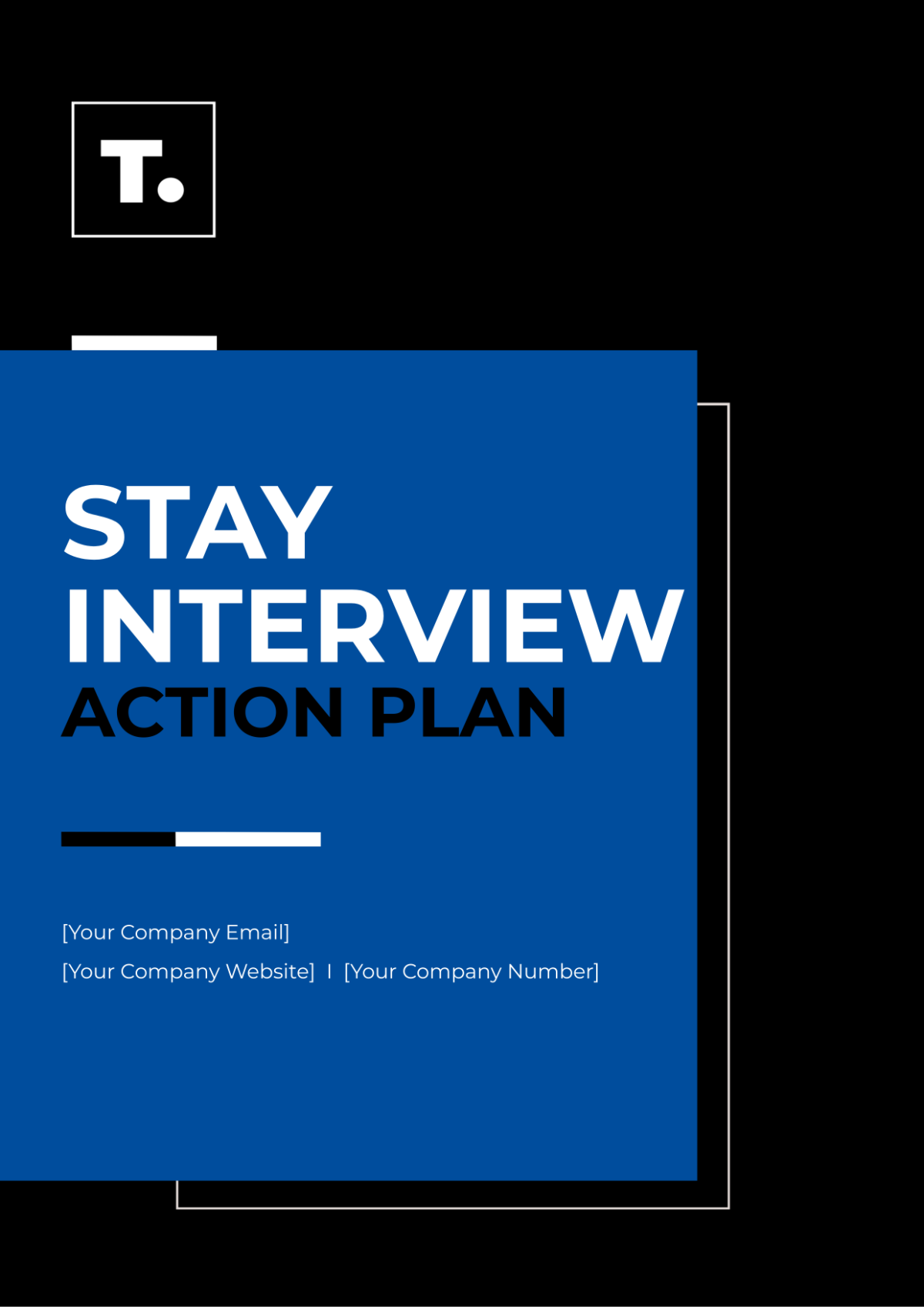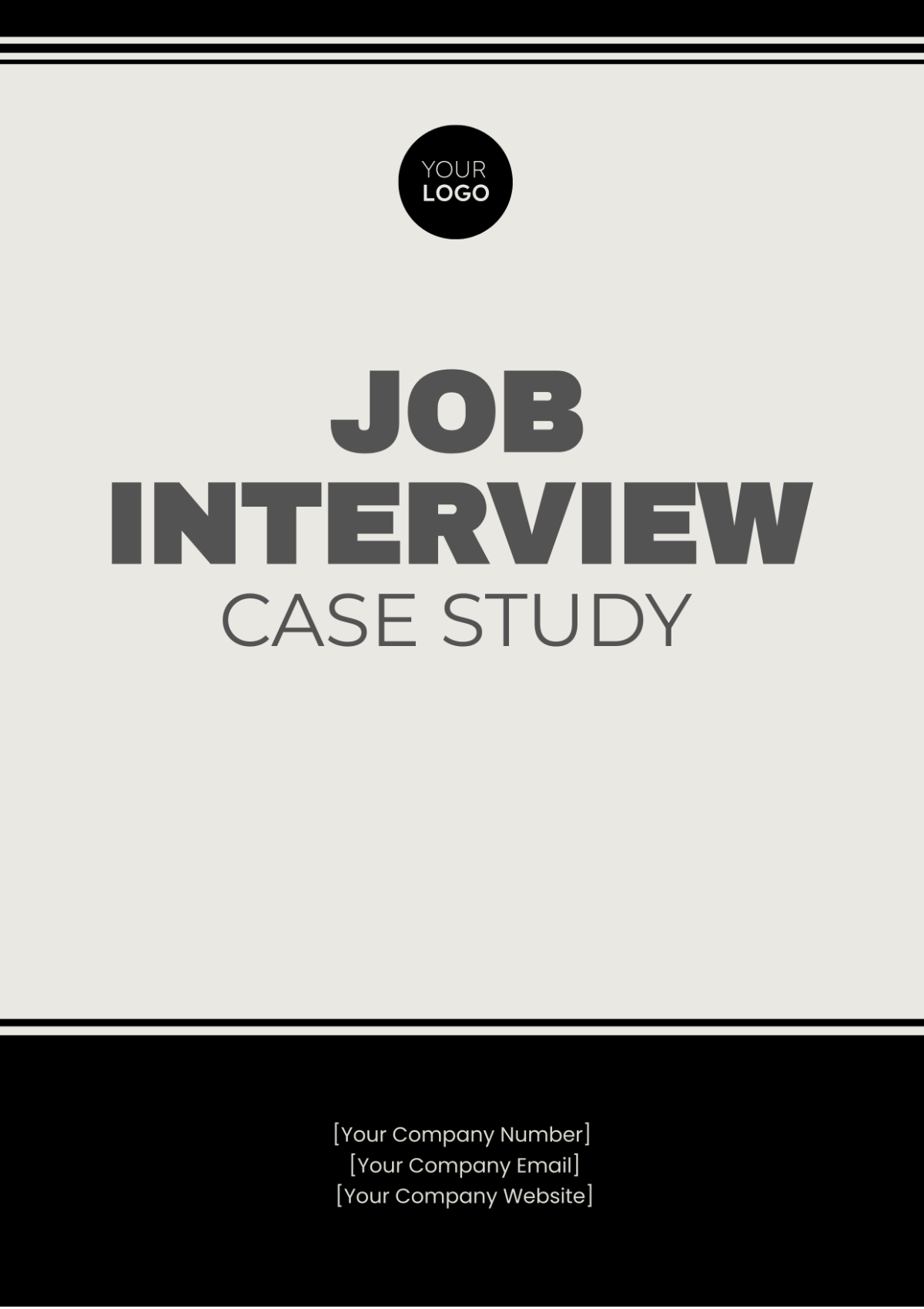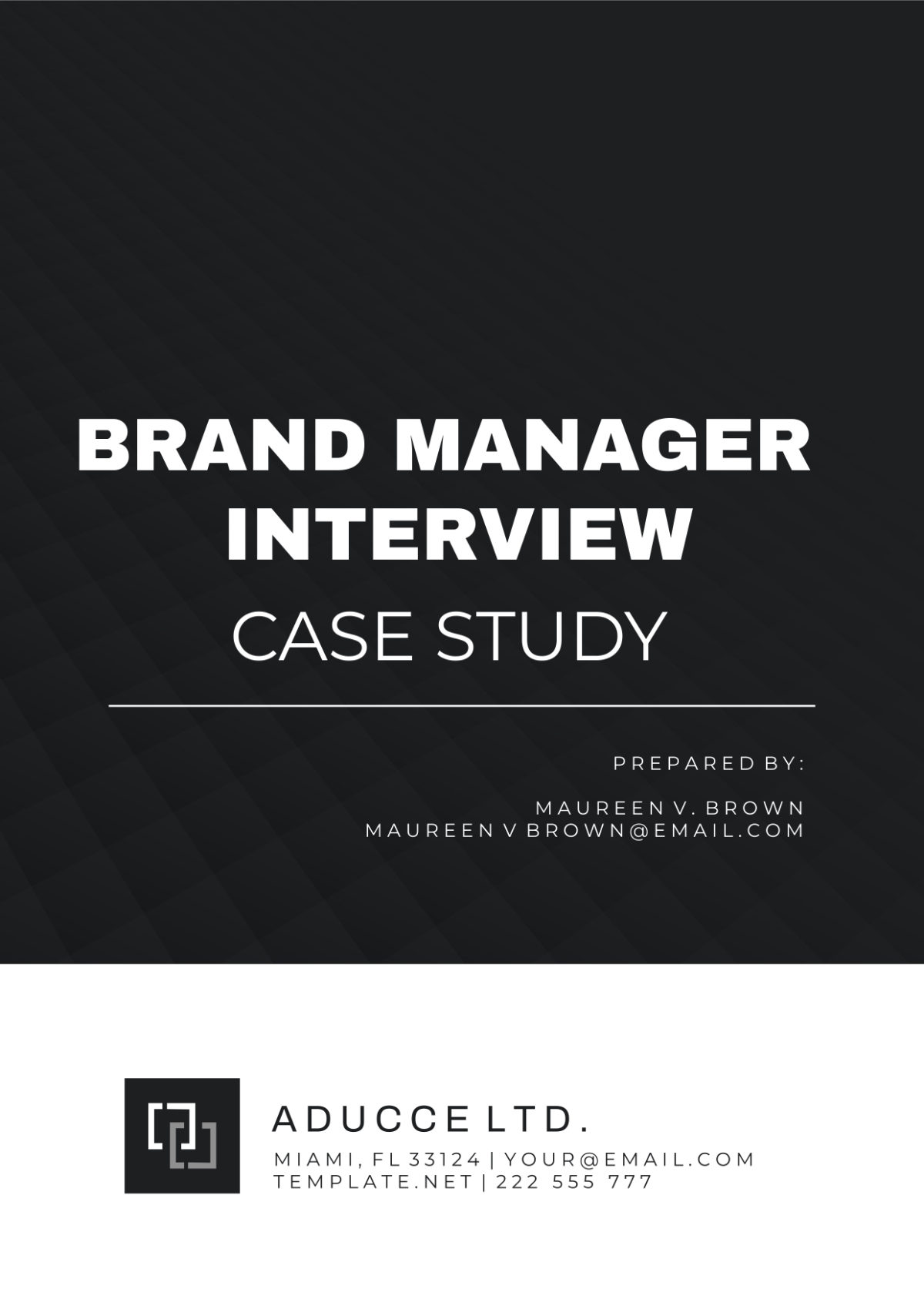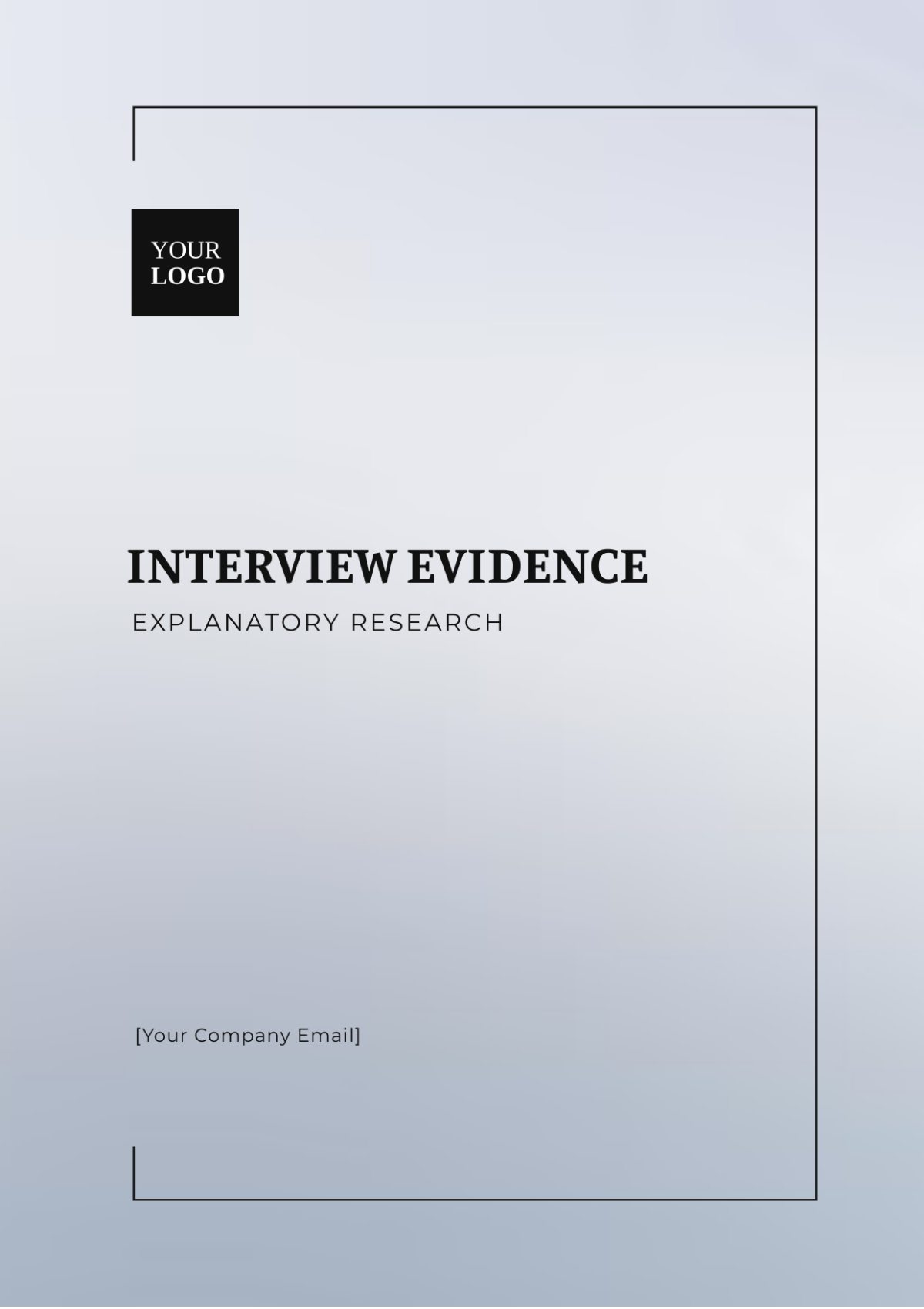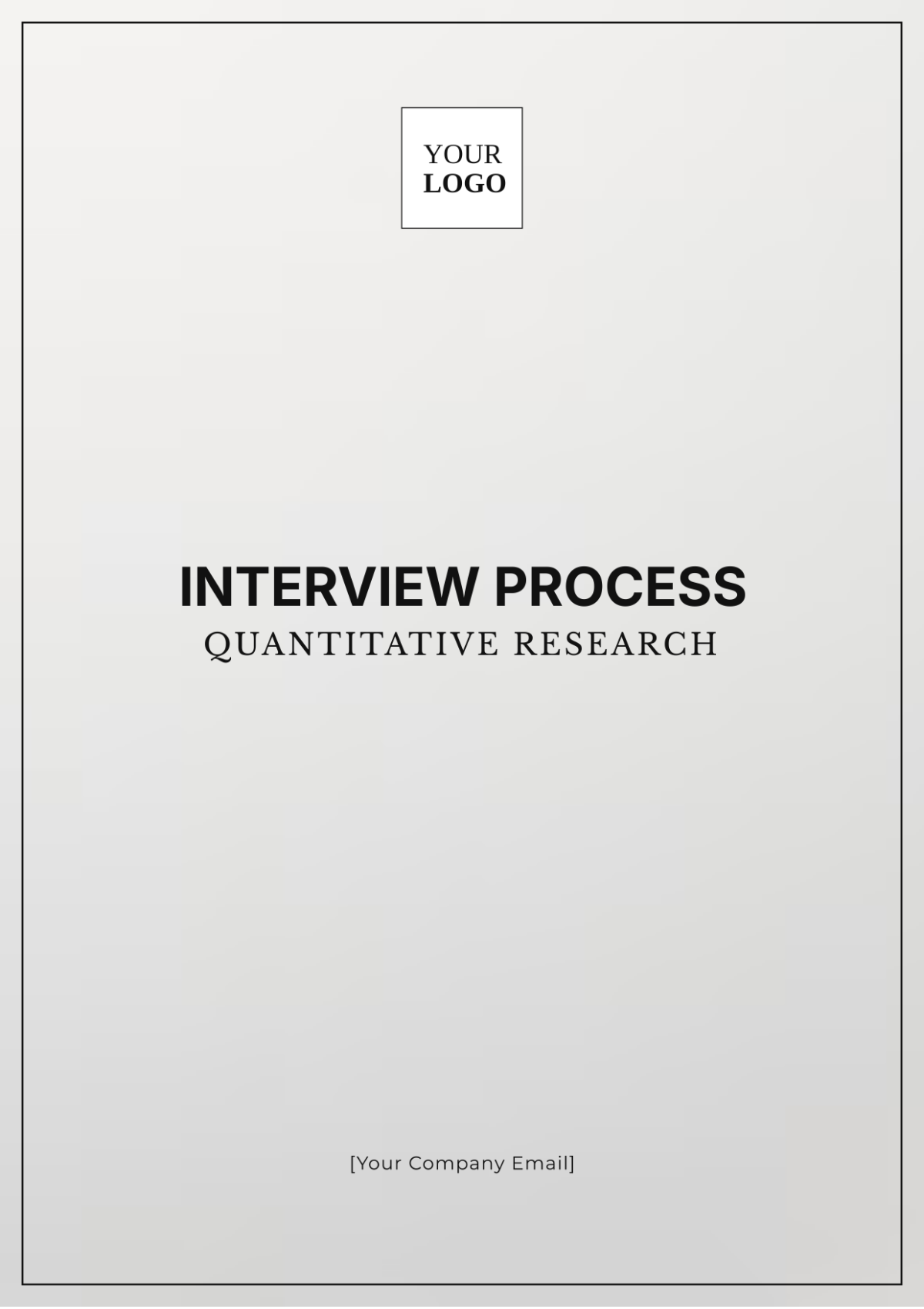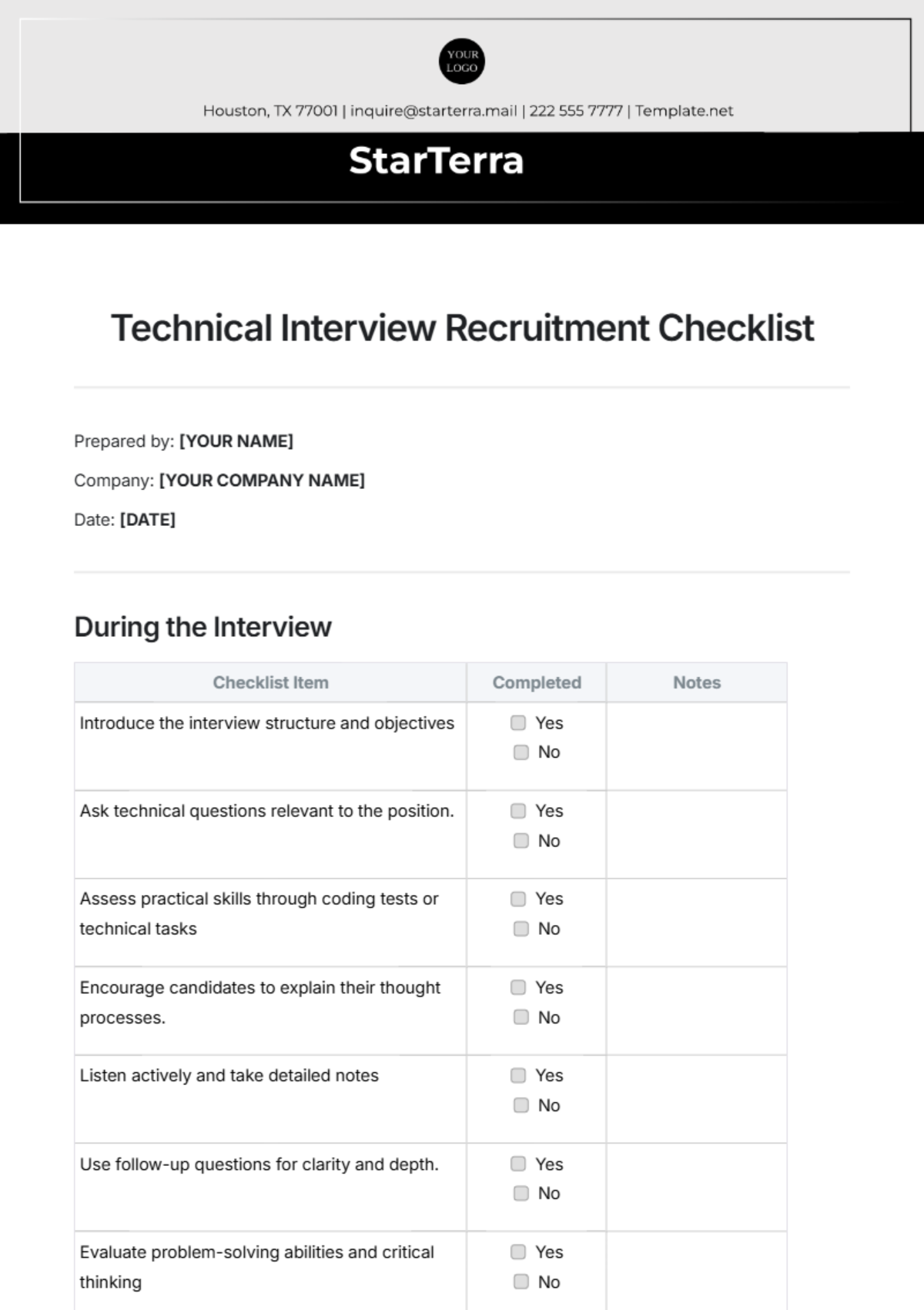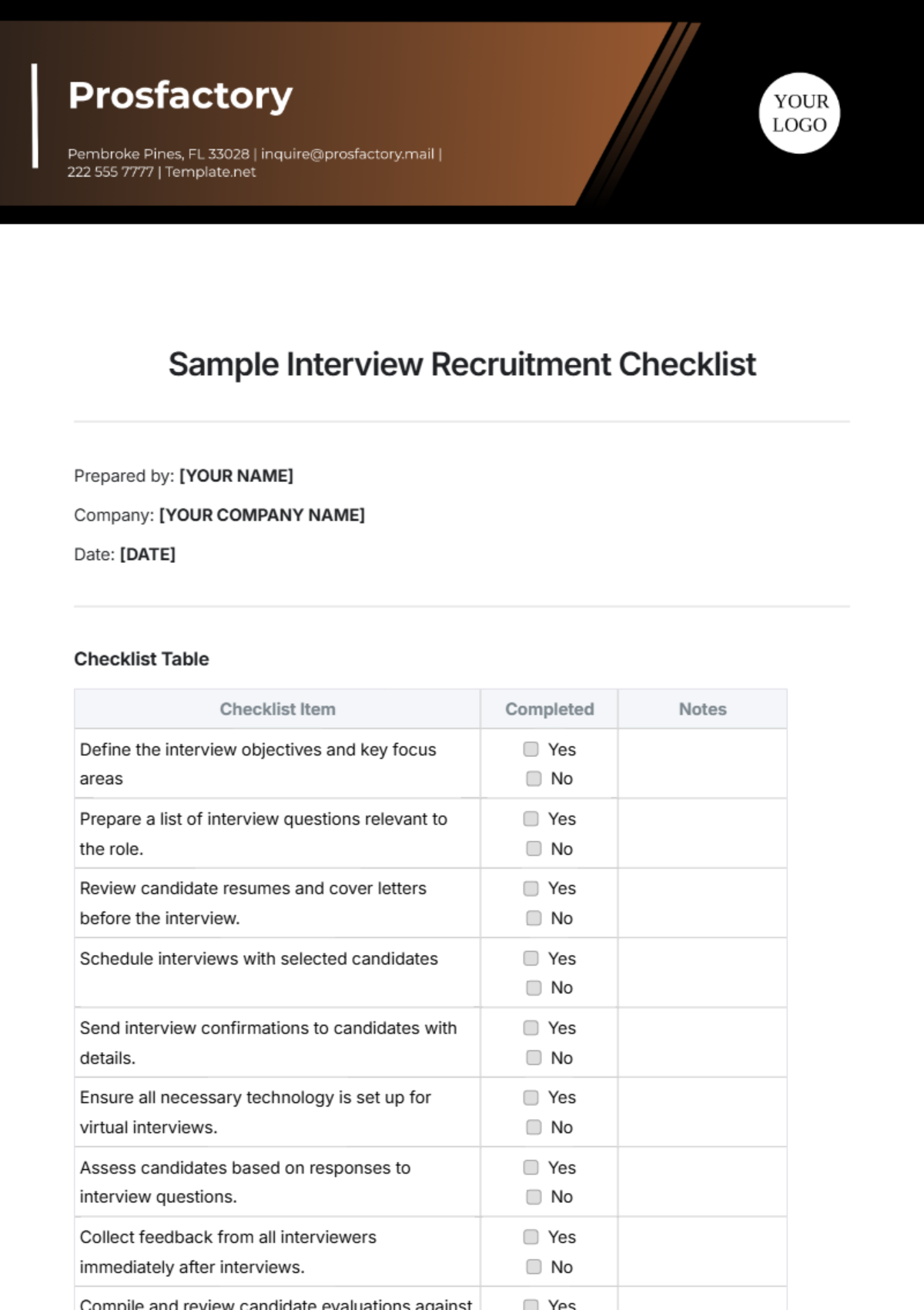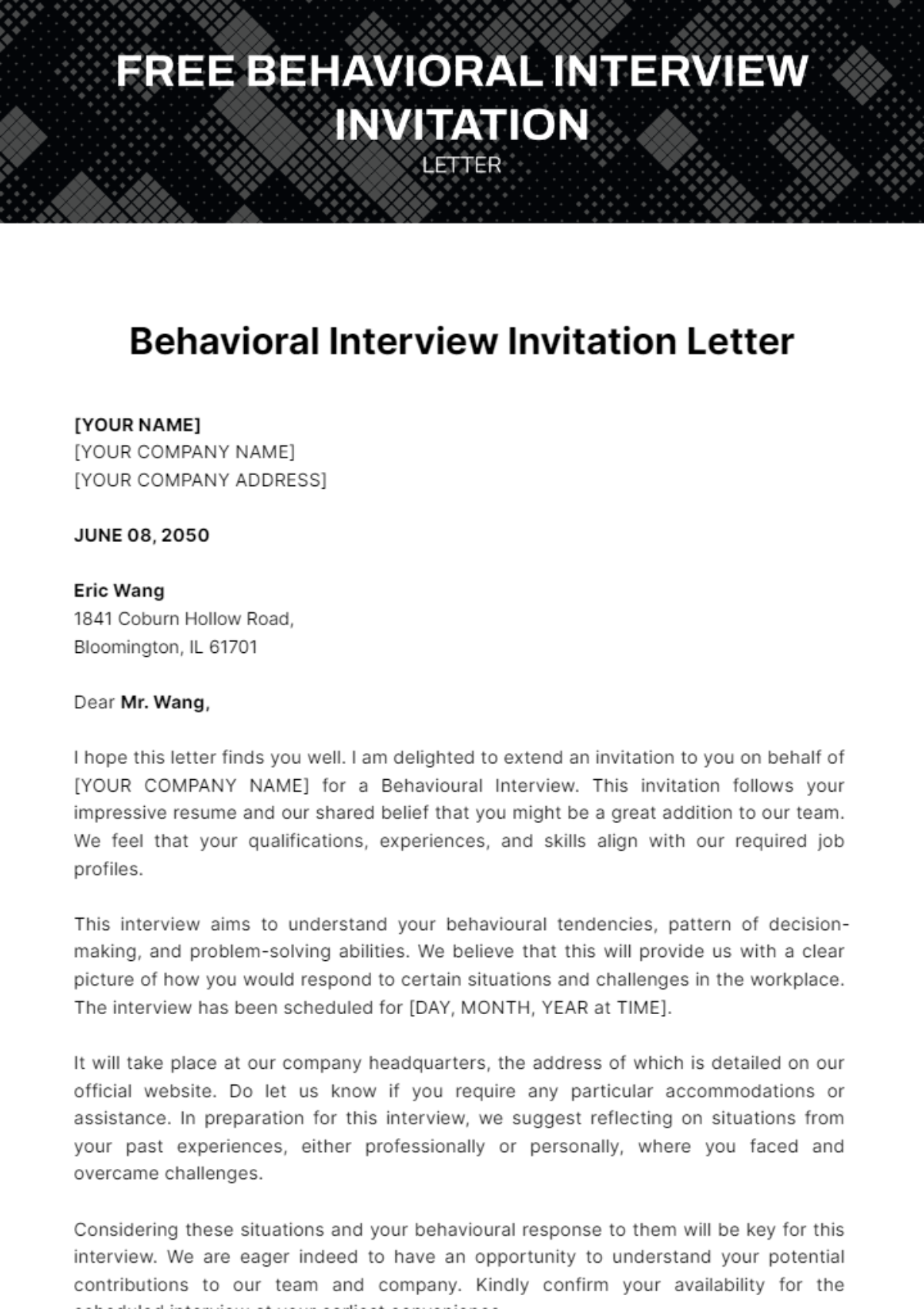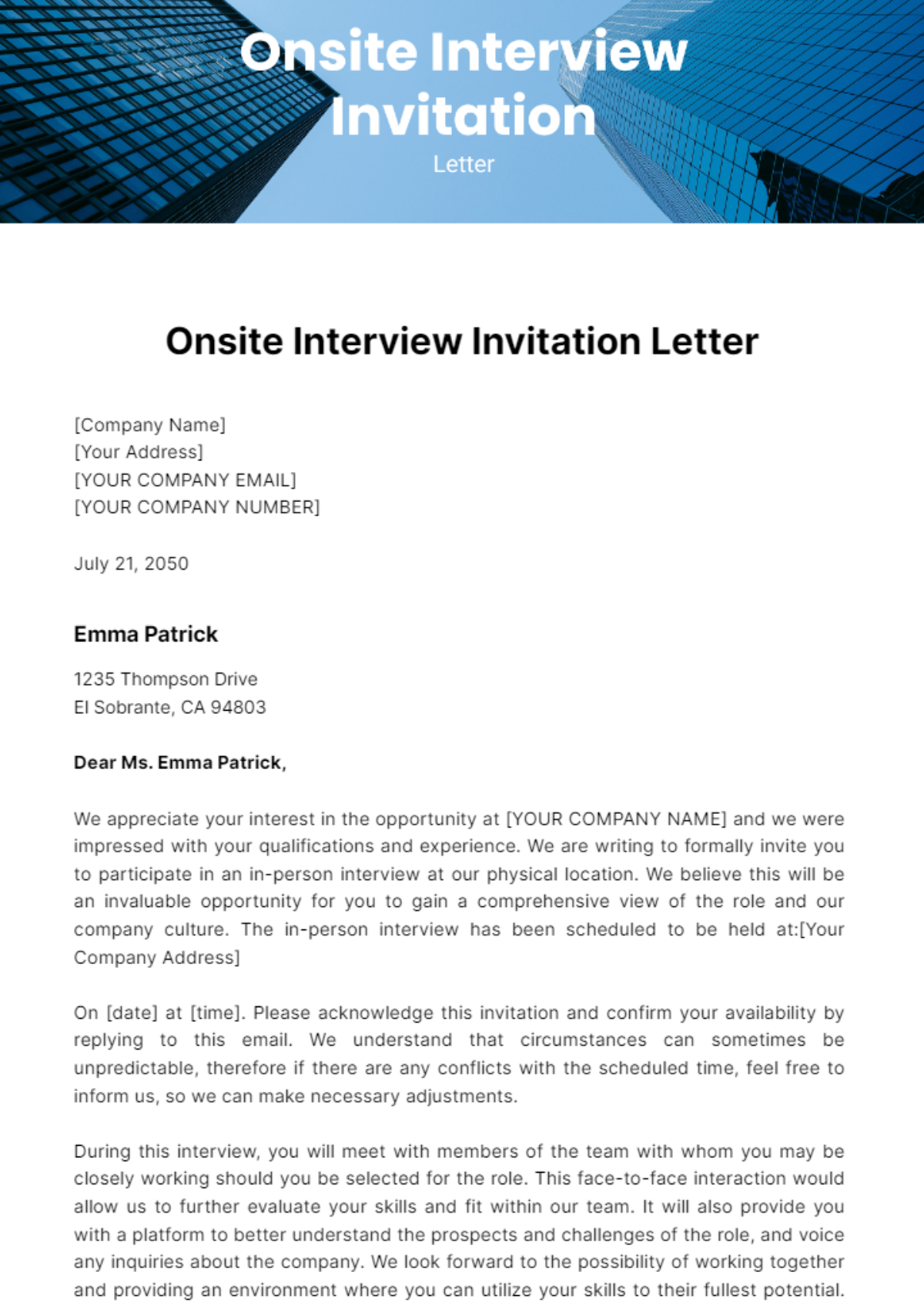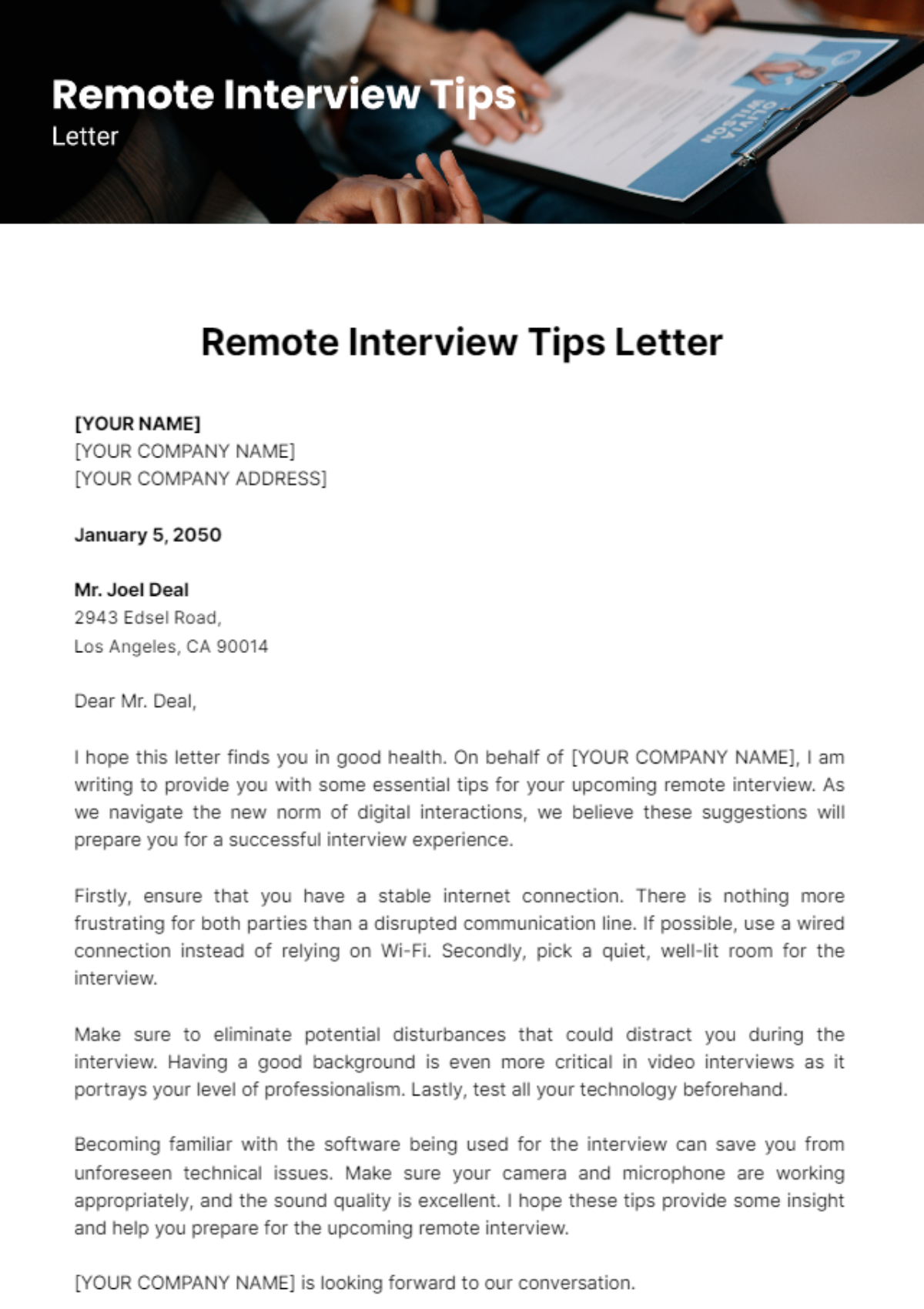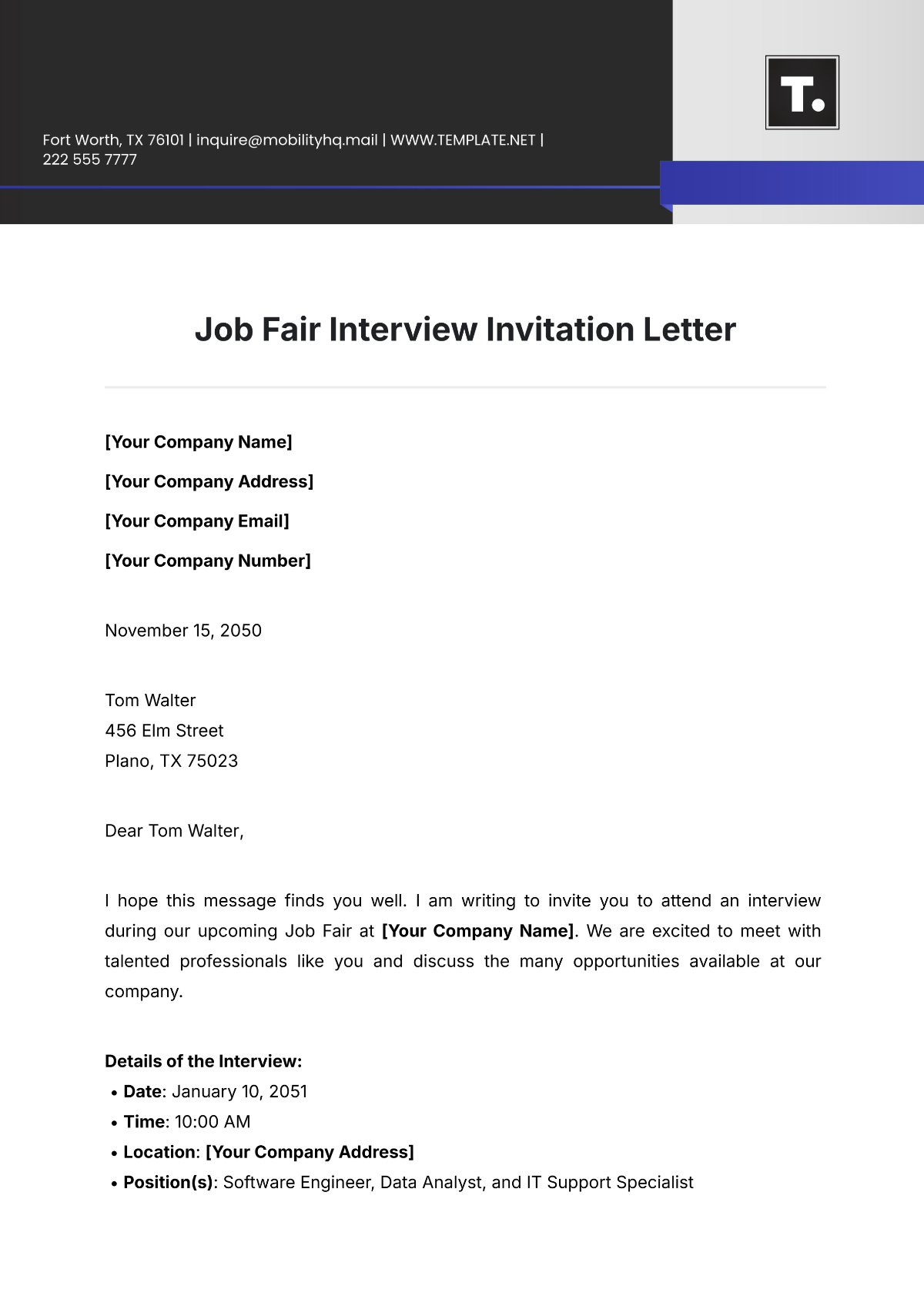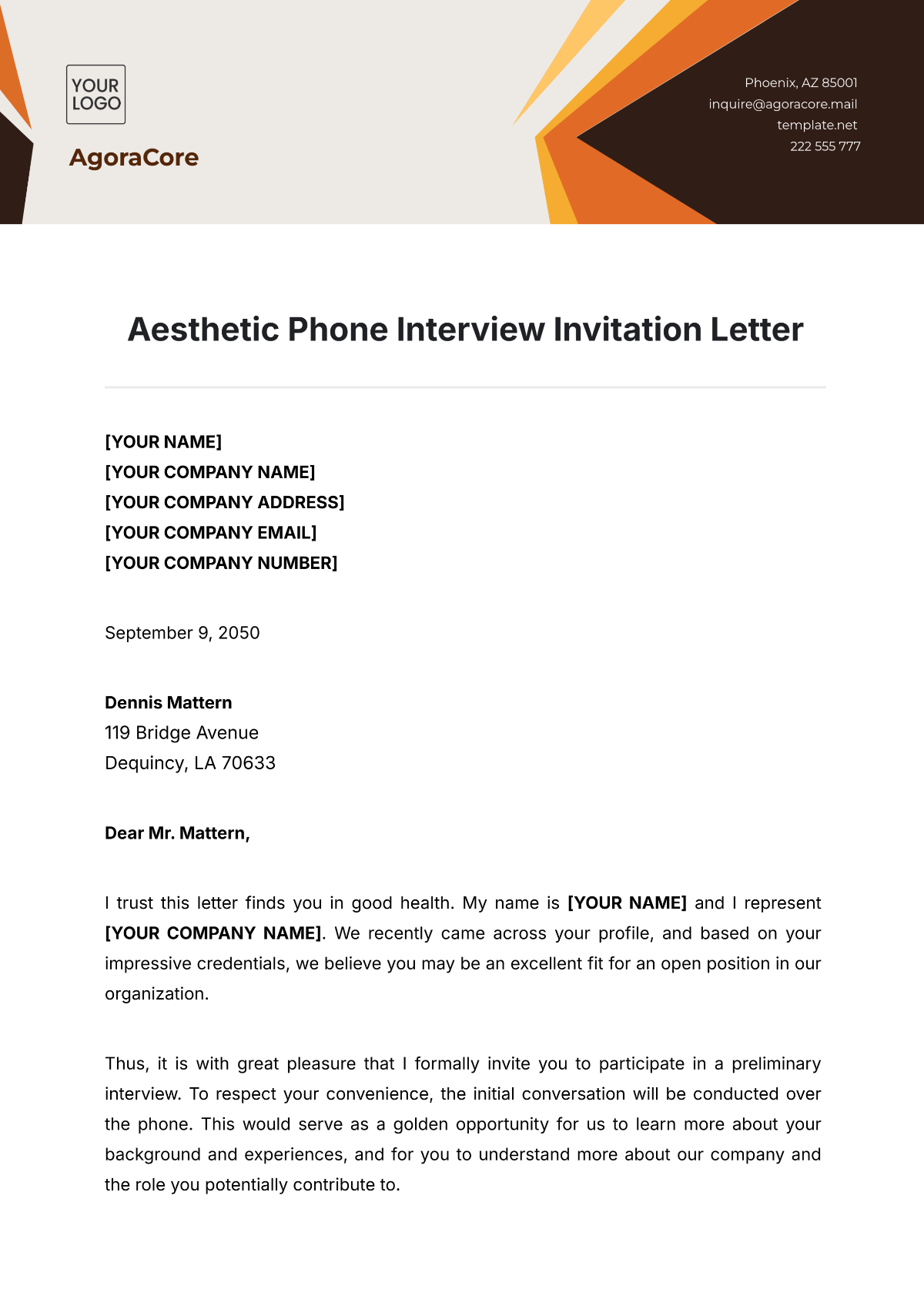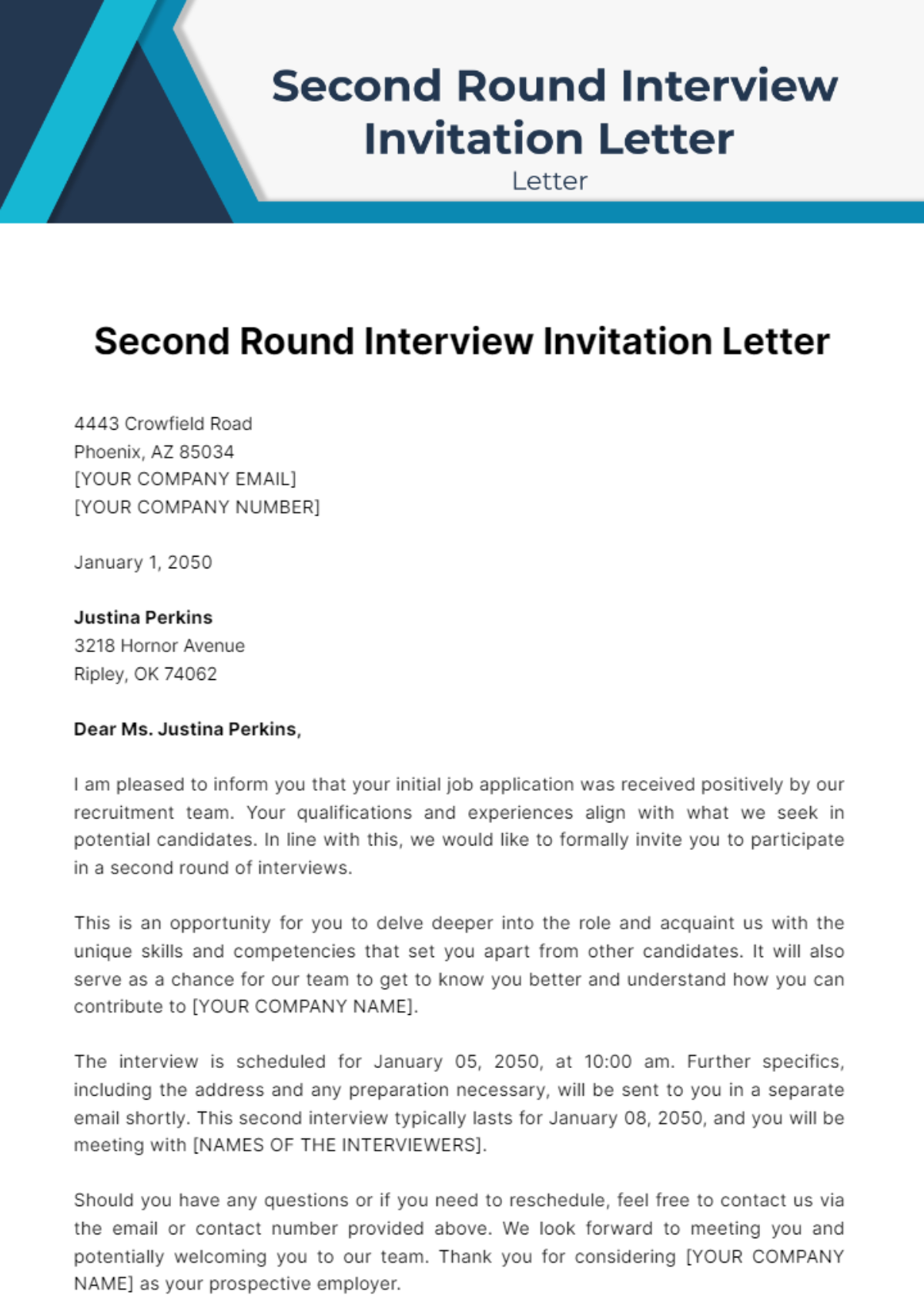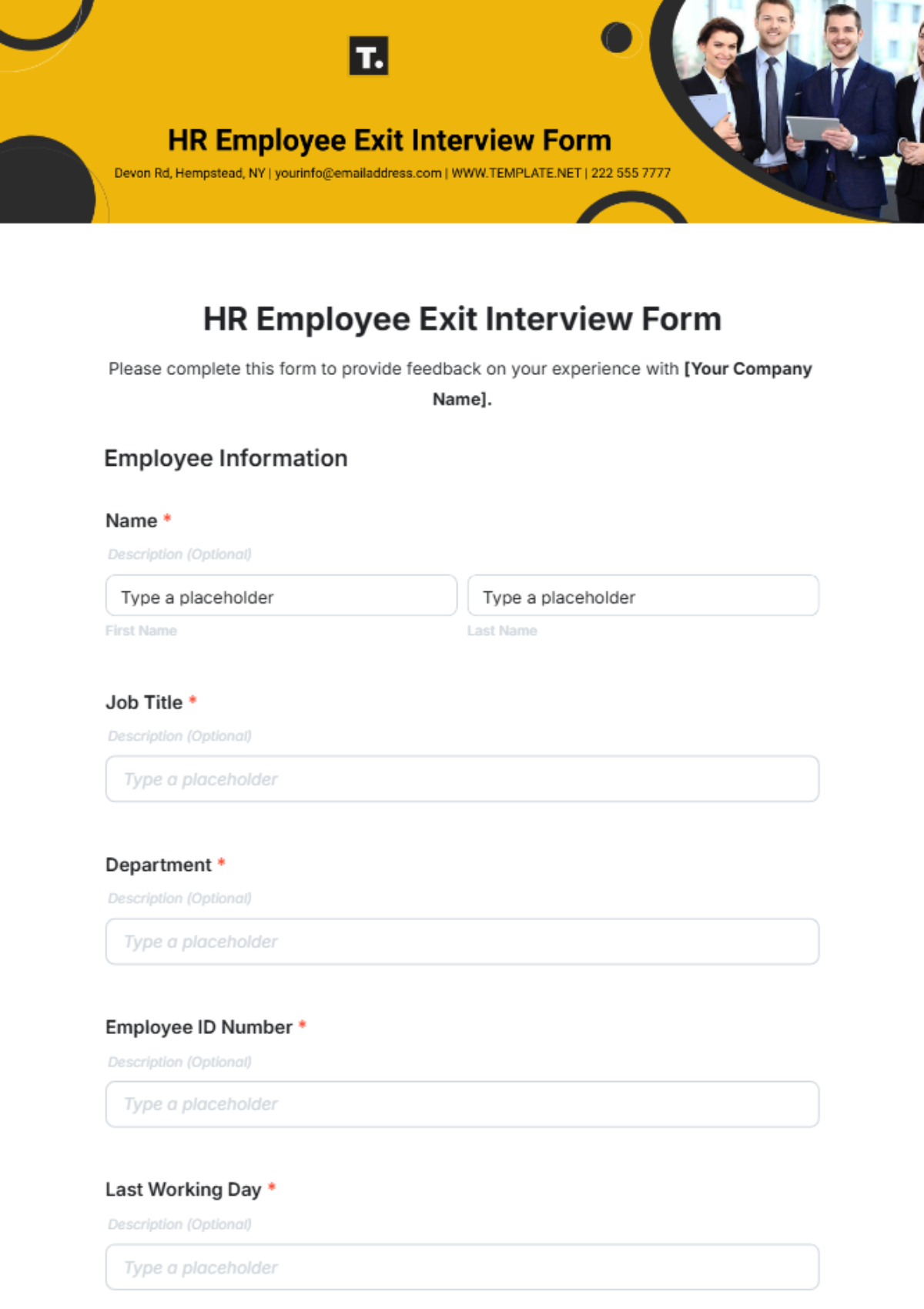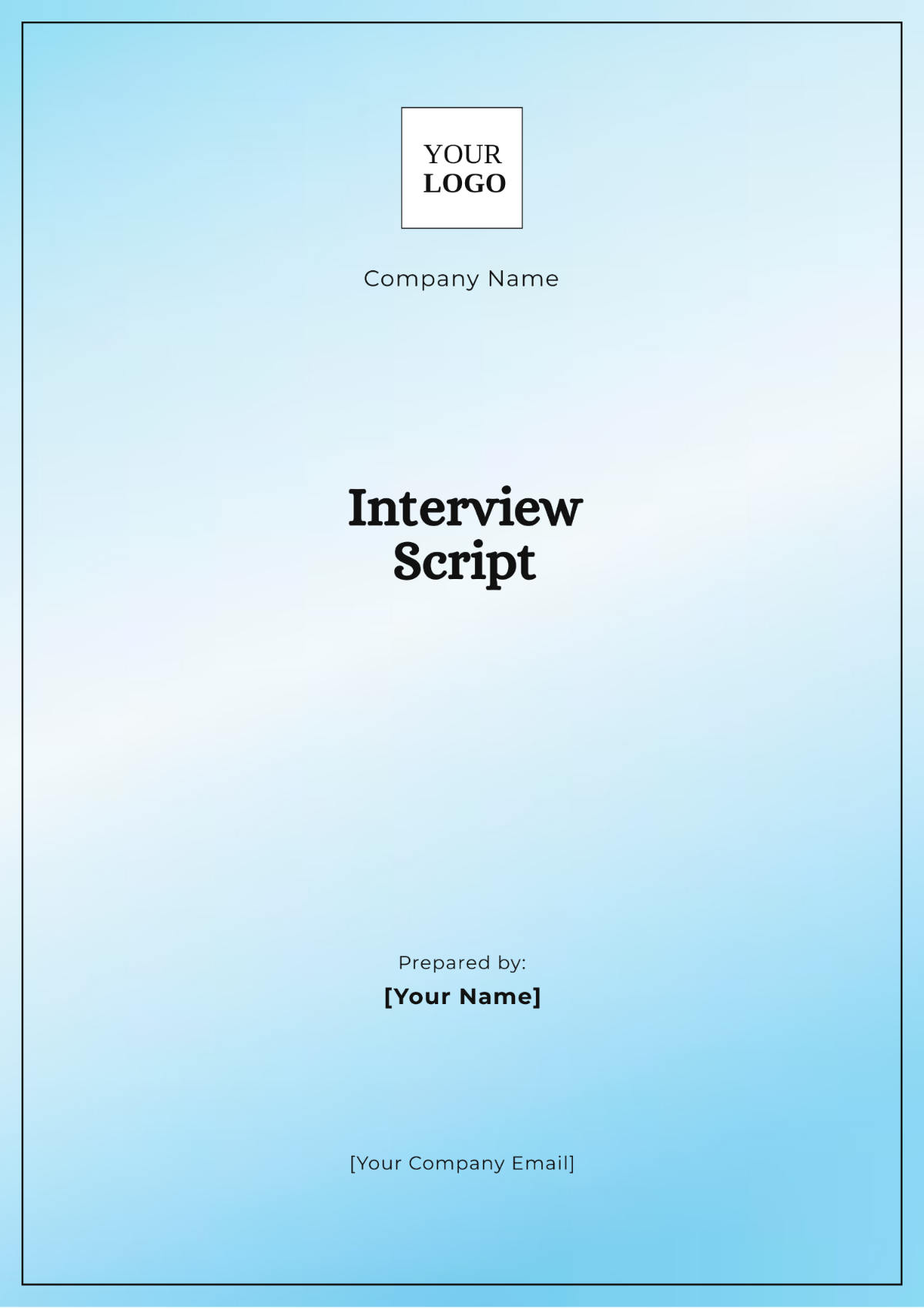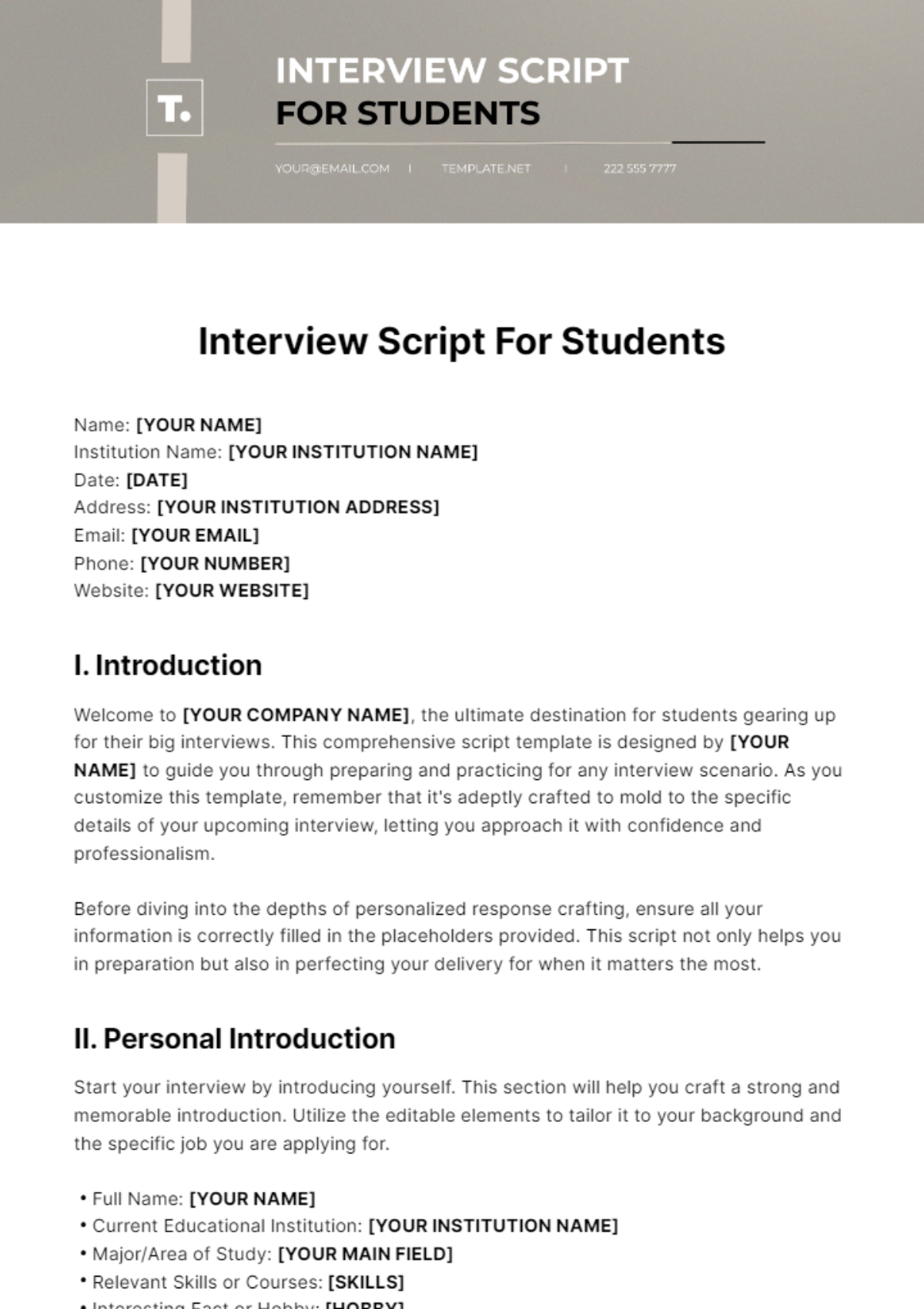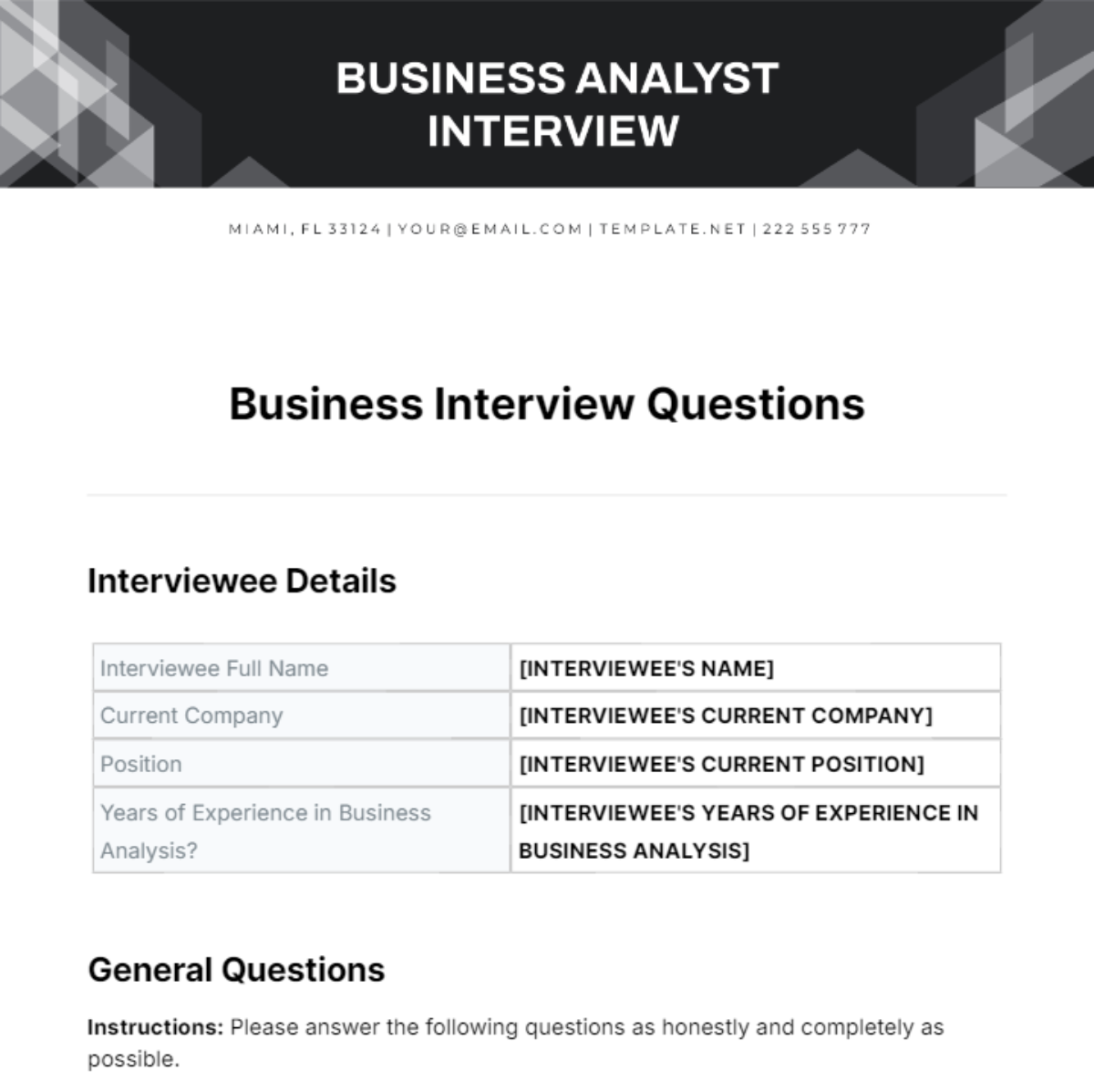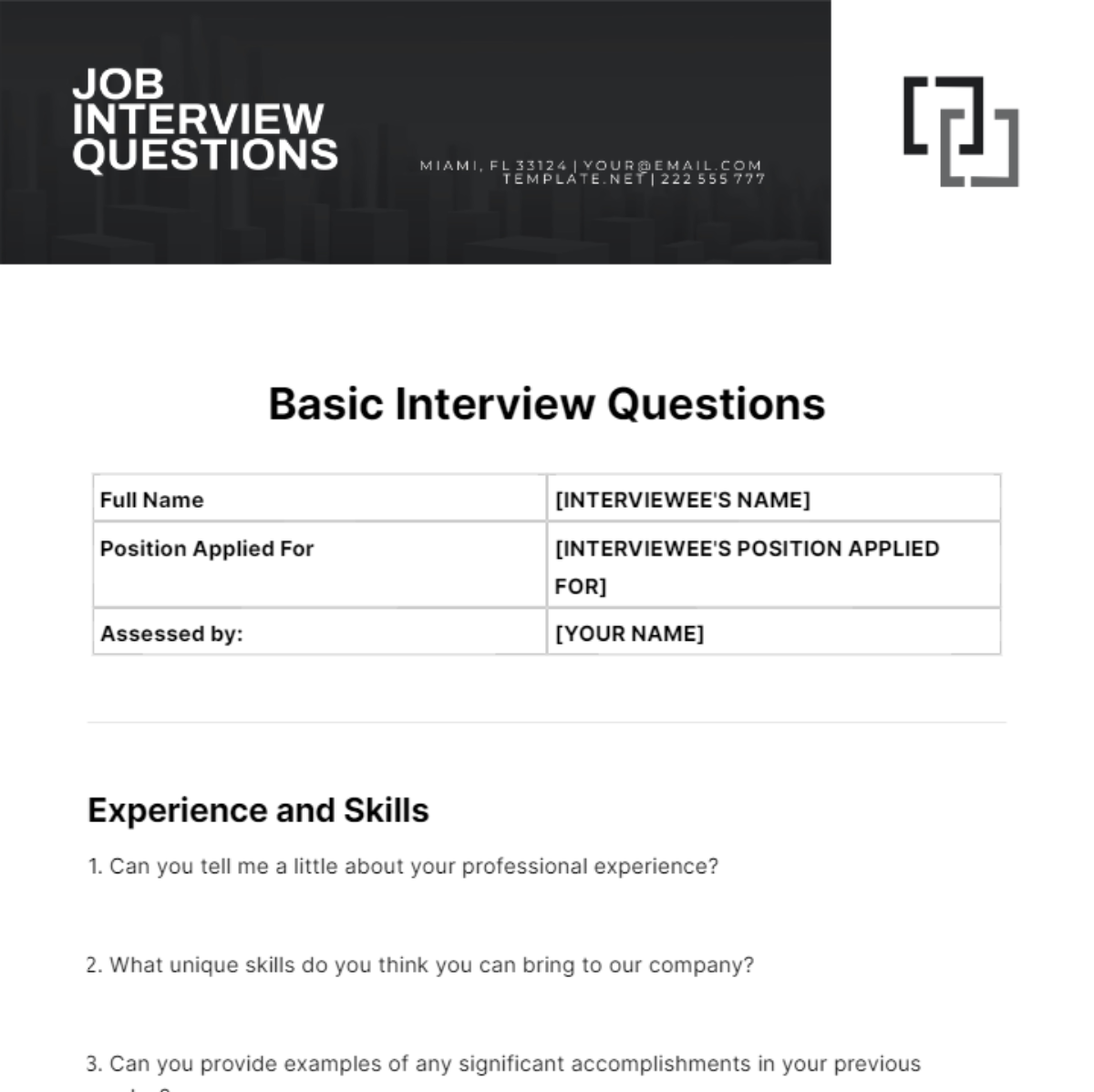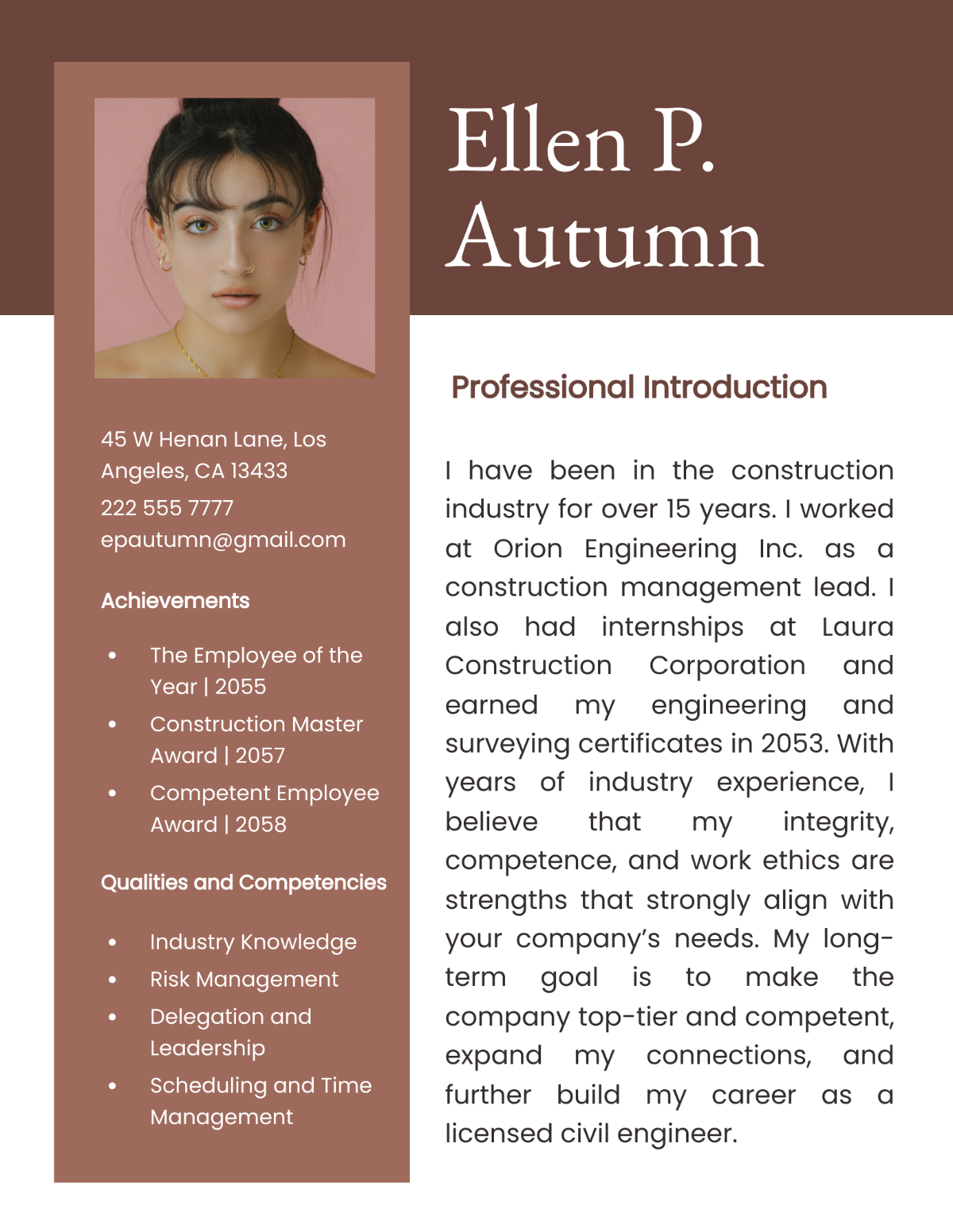Hotel Interview Guide
I. Introduction
Welcome to the Hotel Interview Guide prepared by [Your Name]. This guide is designed to help you prepare effectively for interviews within the hotel industry. Whether you are applying for a managerial position, front desk role, or any other hospitality-related job, this resource will assist you in showcasing your best attributes and securing the role you desire.
Official company details for reference:
Company Name: [Your Company Name]
Company Address: [Your Company Address]
Company Website: [Your Company Website]
Company Email: [Your Company Email]
Company Phone Number: [Your Company Number]
Company Social Media: [Your Company Social Media]
II. Pre-Interview Preparation
Effective pre-interview preparation is essential to making a positive impression and demonstrating your suitability for the role. This chapter provides guidelines on how to research the hotel, understand the specific job role, and prepare thoroughly before the interview. Proper preparation helps you present yourself confidently and competently.
A. Research the Hotel
1. Company Background and History
Understanding the background and history of [Your Company Name] will provide context and demonstrate your interest and commitment to the role.
Founding Year: Know when the hotel was established.
Key Historical Milestones: Familiarize yourself with significant events and achievements.
Current Ownership and Management: Understand who owns the hotel and the key figures in the management team.
2. Hotel Philosophy and Values
Aligning your answers with the hotel’s philosophy and values can give you an edge in the interview.
Mission Statement: Learn the hotel's mission to understand its primary goals.
Core Values: Identify the values that the hotel upholds, such as integrity, service excellence, and innovation.
Customer Service Approach: Know how the hotel prioritizes customer satisfaction and service quality.
3. Key Services and Amenities
Being knowledgeable about the hotel’s services and amenities can help you answer questions about how you would contribute to the hotel’s success.
Room Types: Familiarize yourself with the different types of rooms offered.
In-House Dining Options: Know the various dining options available within the hotel.
Recreational Facilities: Understand the recreational services, such as pools, spas, and fitness centers.
B. Understand the Role
1. Job Description
Thoroughly understanding the job description will help you tailor your answers to demonstrate your suitability for the role.
Responsibilities and Duties: Know the key tasks and responsibilities associated with the role.
Key Performance Indicators: Understand how performance is measured in the position.
2. Required Skills
Identify and be prepared to discuss the skills that are critical for the role.
Technical Skills: Specific skills required to perform job duties effectively (e.g., proficiency in hotel management software).
Soft Skills: Interpersonal skills that contribute to a positive work environment (e.g., communication, problem-solving).
3. Qualifications
Review the qualifications needed for the position and be ready to demonstrate how you meet or exceed these requirements.
Educational Requirements: Degrees or certifications required for the role.
Relevant Experience: Previous work experience that makes you a strong candidate.
III. Interview Day Checklist
Being well-prepared on the day of your interview can significantly impact your performance. This chapter outlines the essential documents to bring, tips for personal presentation, and key elements of professional body language. Following this checklist ensures you are organized and present yourself in the best possible light.
A. Essential Documents to Bring
Bringing the right documents ensures you are prepared and professional.
Multiple Copies of Your Resume: Have several copies on hand to provide to different interviewers.
A List of References: Prepare a list of professional references who can speak to your qualifications.
Any Certificates or Educational Transcripts: Bring copies of relevant certifications and academic records.
B. Personal Presentation
1. Dress Code
Presenting yourself appropriately shows respect for the interview process and the organization.
Business Formal Attire: Wear professional business attire appropriate for the hotel industry.
Personal Grooming Tips: Ensure neat grooming; pay attention to details like clean shoes and minimal accessories.
2. Body Language
Your body language can convey confidence and professionalism.
Eye Contact: Maintain good eye contact to show engagement and confidence.
Handshake: Offer a firm handshake as a professional greeting.
IV. Common Interview Questions
Anticipating the questions you might be asked during an interview is a crucial part of your preparation. This chapter covers common interview questions, including general, role-specific, and scenario-based inquiries. Understanding these questions helps you formulate thoughtful and relevant responses, showcasing your qualifications and experience.
A. General Questions
These questions help interviewers understand your background and motivations.
Tell me about yourself.
Focus on your professional background, key achievements, and what you bring to the role.
Why do you want to work at [Company Name]?
Discuss what attracts you to the hotel and how you align with its values and goals.
B. Role-Specific Questions
These questions assess your suitability for the specific role you are applying for.
How do you handle difficult customers?
Provide examples of past experiences and your approach to resolving conflicts.
Can you describe a time when you improved a hotel's service quality?
Share a specific instance where your actions led to measurable improvements in service.
C. Scenario-Based Questions
These questions evaluate your problem-solving abilities and how you handle real-world situations.
How would you handle a double booking situation?
Explain the steps you would take to resolve the issue while maintaining guest satisfaction.
Describe a time when you had to deal with an emergency.
Discuss your actions, the outcome, and what you learned from the experience.
V. Follow-Up After the Interview
Following up after an interview is a critical step in the interview process. This chapter discusses the importance of sending thank-you notes, the appropriate format and content for these notes, and how to reflect on your interview performance. Effective follow-up can reinforce your interest in the role and leave a lasting positive impression.
A. Sending a Thank-You Note
Expressing gratitude and reiterating your interest can leave a positive impression.
1. Format
Email Format: Send a timely email to express your thanks.
Handwritten Note: Consider a handwritten note for a personal touch.
2. Content
Expression of Gratitude: Thank the interviewers for their time and consideration.
Reiteration of Interest: Reaffirm your enthusiasm for the role and why you are a good fit.
Contact Details: Include your contact information for further communication.
B. Post-Interview Reflection
Reflecting on your performance can help you improve for future interviews.
Strengths and Weaknesses of Your Performance
Assess what you did well and areas where you could improve.
Areas for Improvement
Identify specific actions you can take to enhance your interviewing skills.
VI. Sample Interview Questions and Answers
Reviewing sample interview questions and answers can help you prepare more effectively for your interview. This chapter provides examples of how to answer common questions, giving you a framework to tailor your responses. Practicing these questions and answers can boost your confidence and improve your performance during the interview.
A. General Questions
1. Tell me about yourself.
"With over five years of experience in the hospitality industry, I have developed a strong skill set in customer service, operations management, and team leadership. I am passionate about creating exceptional guest experiences and am excited about the opportunity to bring my expertise to [Your Company Name]."
2. Why do you want to work at [Company Name]?
"I admire [Company Name]'s commitment to excellence and its reputation for outstanding service. I believe my skills in customer relations and hotel management align perfectly with your needs, and I am eager to contribute to your team and help drive continued success."
B. Role-Specific Questions
1. How do you handle difficult customers?
"I handle difficult customers by listening carefully to their concerns, empathizing with their situation, and finding a satisfactory solution. For example, when a guest was unhappy with their room, I immediately offered a room upgrade and a complimentary meal, which resolved the issue and turned the guest's experience around."
2. Can you describe a time when you improved a hotel's service quality?
"At my previous job, I noticed that guest feedback highlighted slow check-in times. I initiated a cross-training program for staff, which allowed us to streamline the check-in process. As a result, our average check-in time decreased by 20%, and guest satisfaction scores improved significantly."
C. Scenario-Based Questions
1. How would you handle a double booking situation?
"I would first apologize to both guests for the inconvenience and assure them that I am resolving the issue. I would then offer one guest an upgrade to a better room or suite at no additional cost and provide additional amenities to ensure both guests are satisfied with the resolution."
2. Describe a time when you had to deal with an emergency.
"During a fire alarm at the hotel, I quickly and calmly followed the emergency procedures. I ensured that all guests were evacuated safely and accounted for, and communicated regularly with emergency services. After the situation was resolved, I followed up with the guests to address any concerns and provided complimentary services as a goodwill gesture."
VII. Conclusion
Preparing for an interview at [Your Company Name] requires thorough research, understanding of the role, and effective presentation of your skills and experiences. This guide provides a structured approach to help you succeed in your interview and secure the job you desire.
For any inquiries or further assistance, please contact:
[Your Name]
[Your Company Name]
[Your Company Address]
[Your Company Website]
[Your Company Email]
[Your Company Number]
[Your Company Social Media]
